Hydrogen Jukebox
HYDROGEN JUKEBOX
Scenic and Costume Designer: Anya Klepikov; Projection Designer: C. Andrew Bauer; Lighting Designer: Lisa Miller
Lawrence Edelson, Director and Choreographer
Fort Worth Opera - 2011
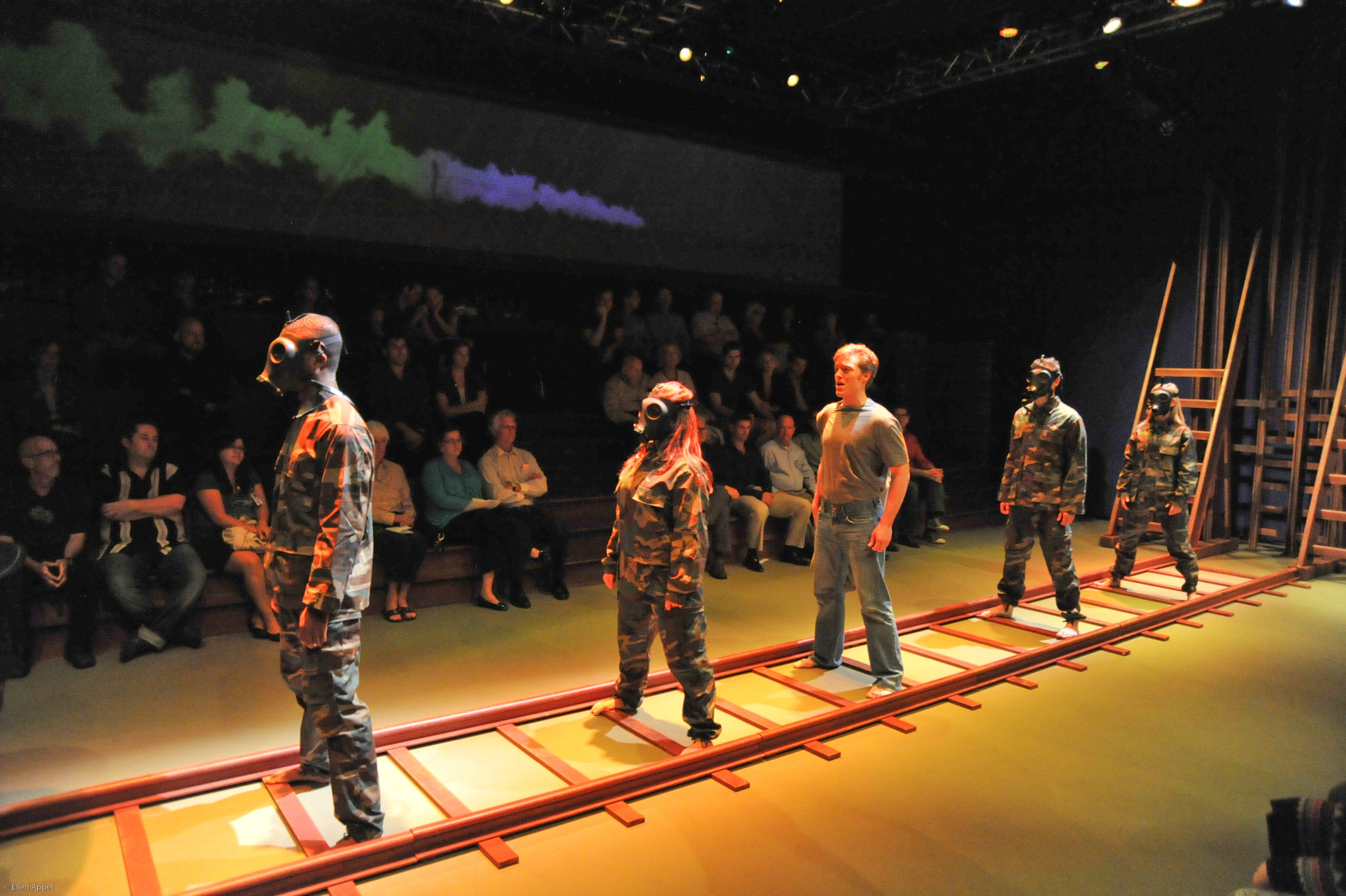
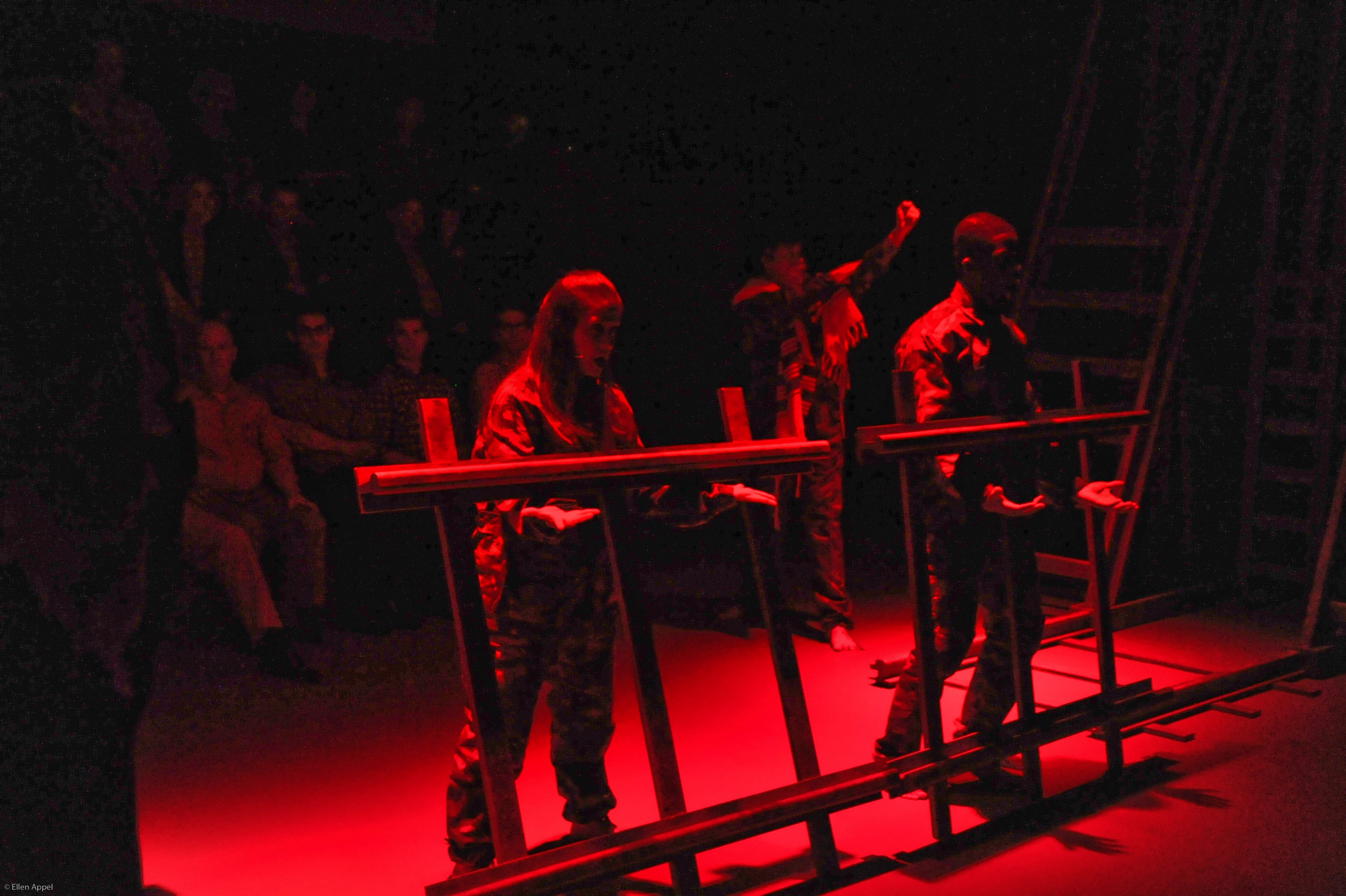
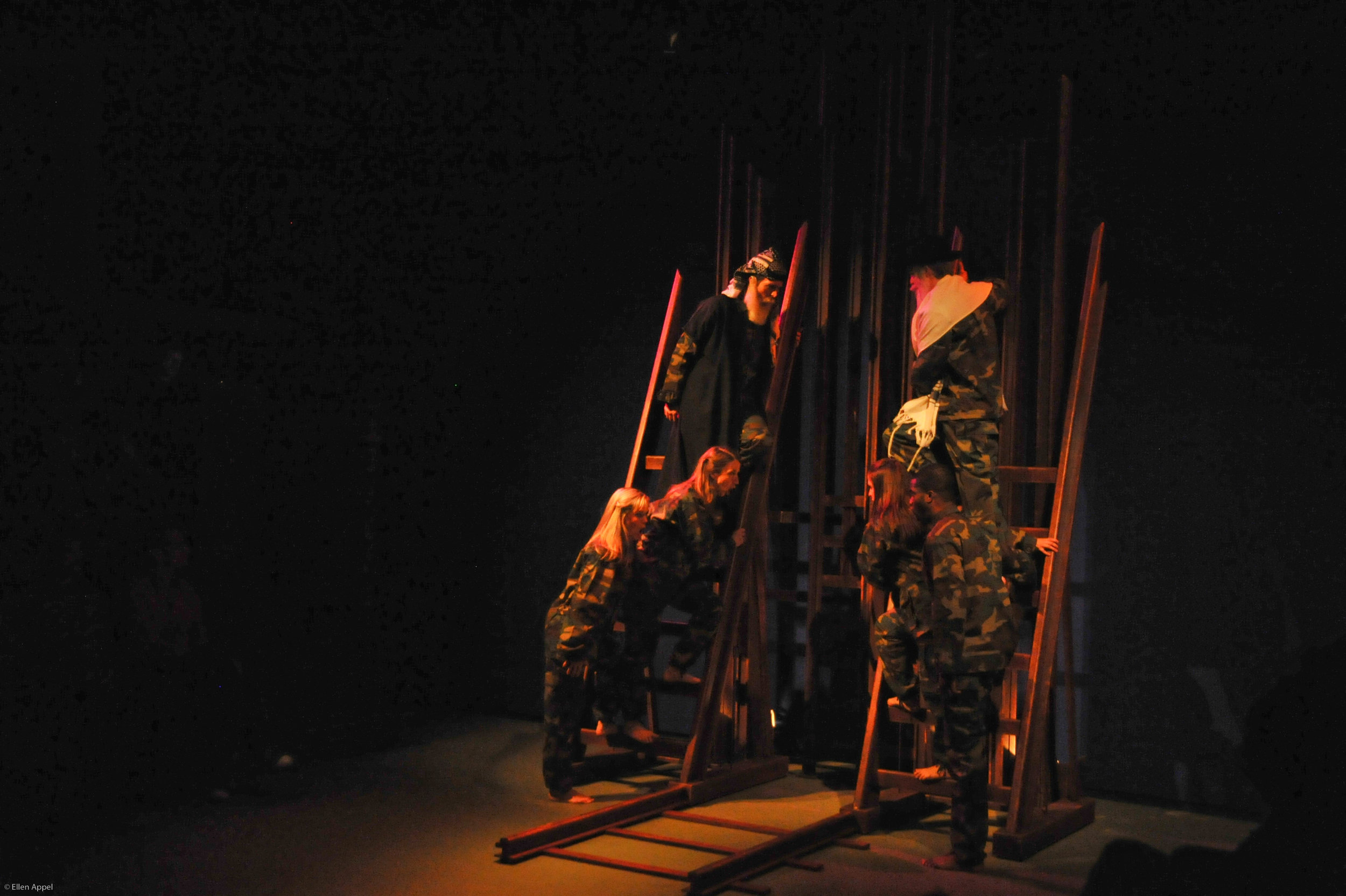
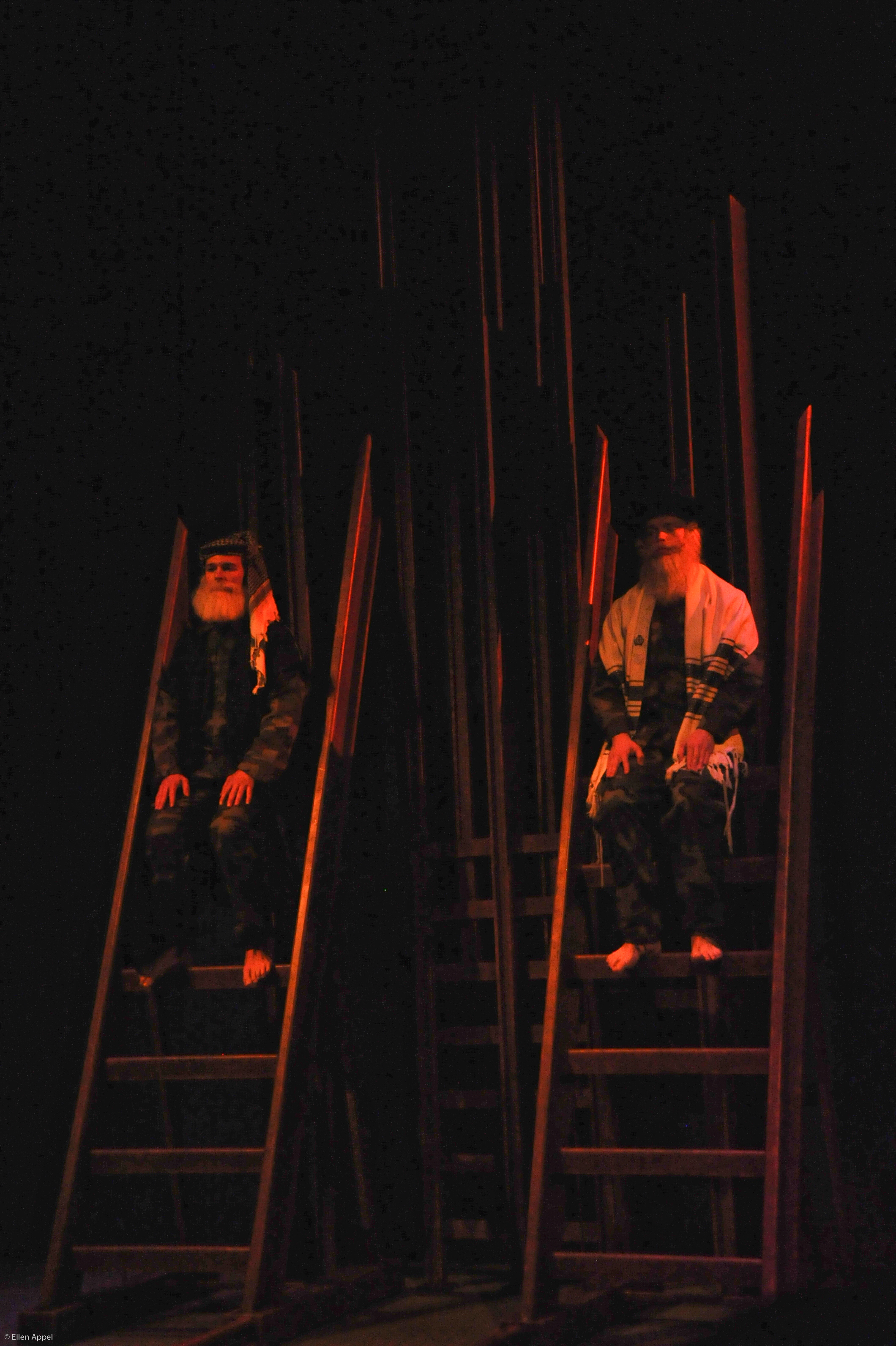

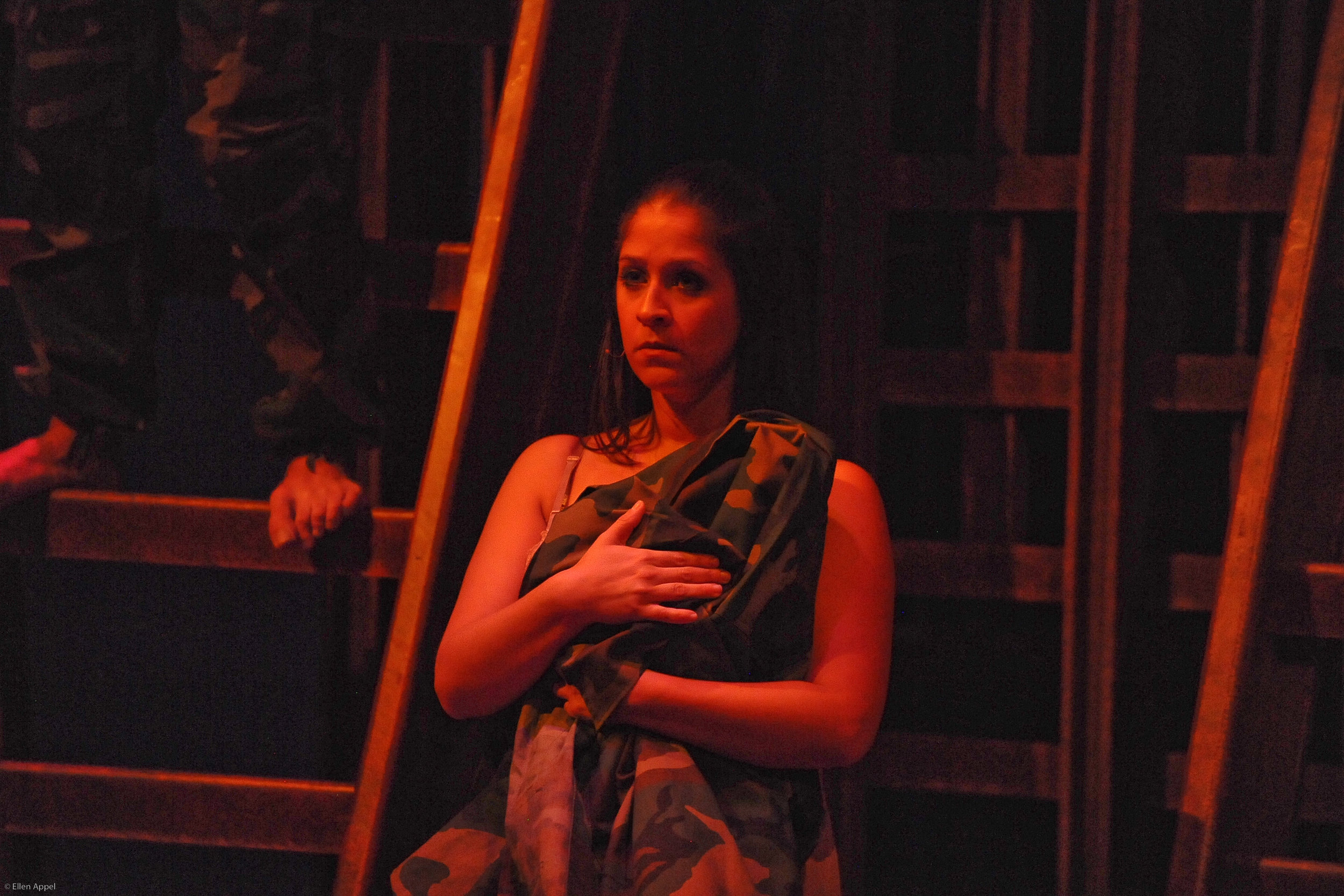

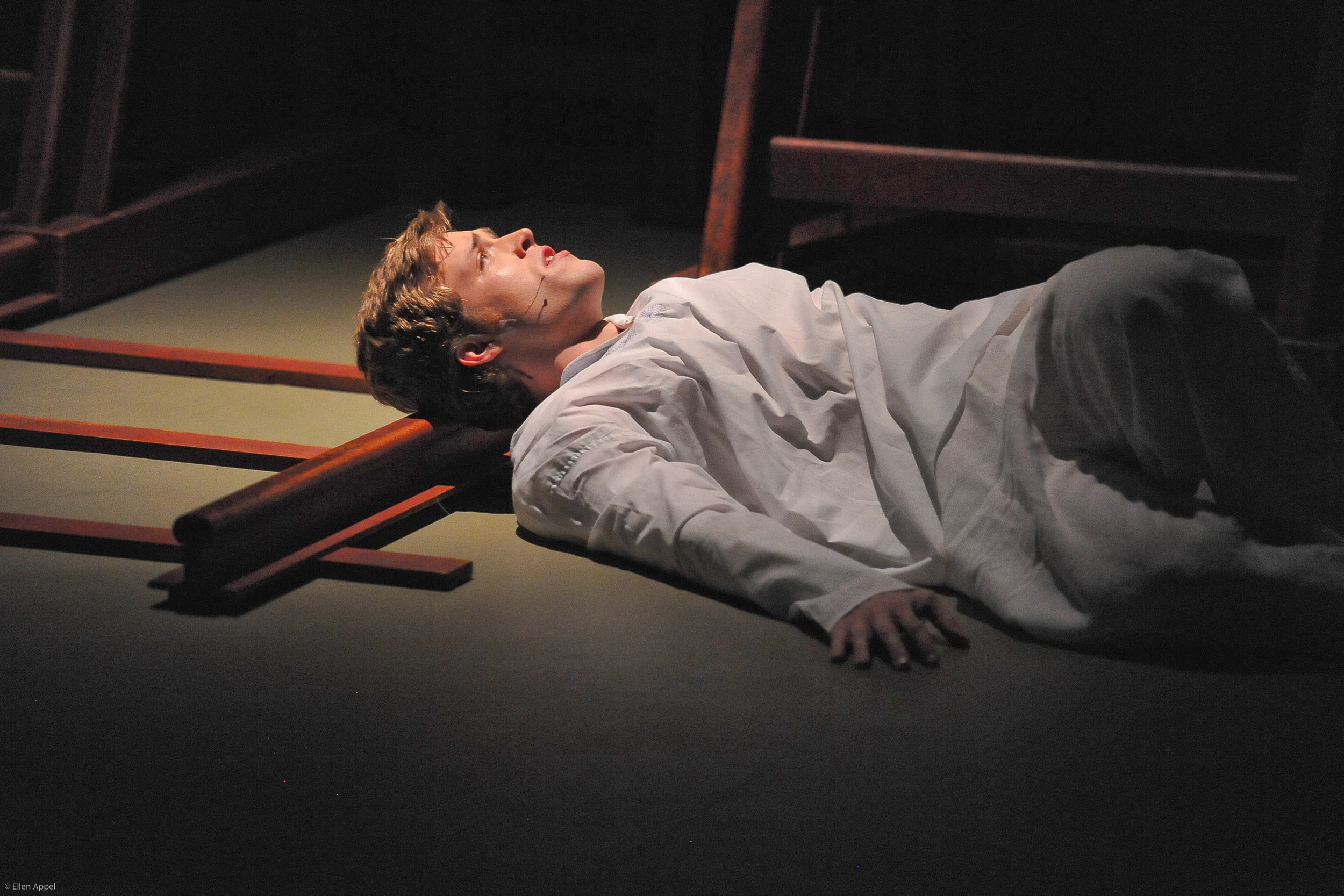
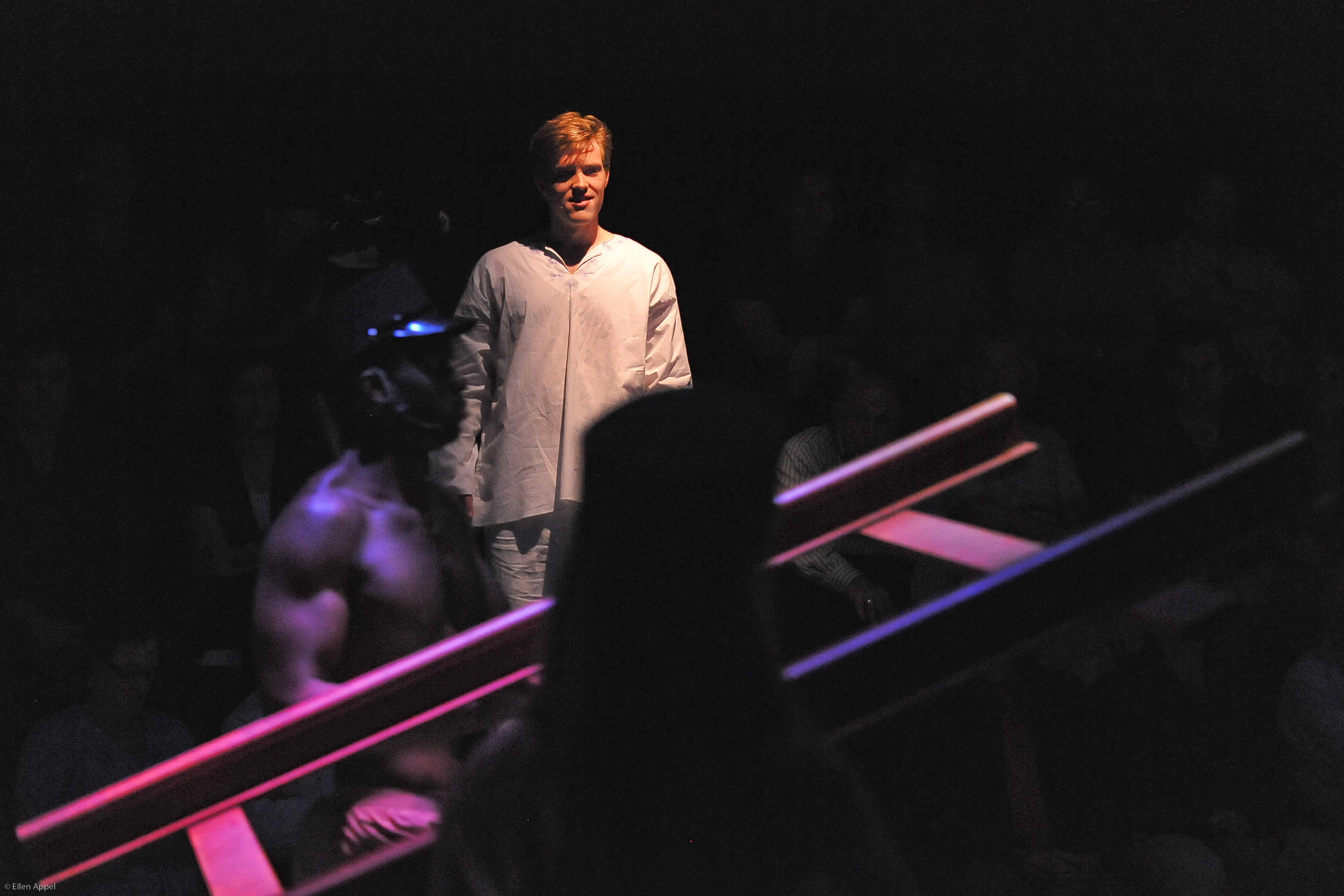
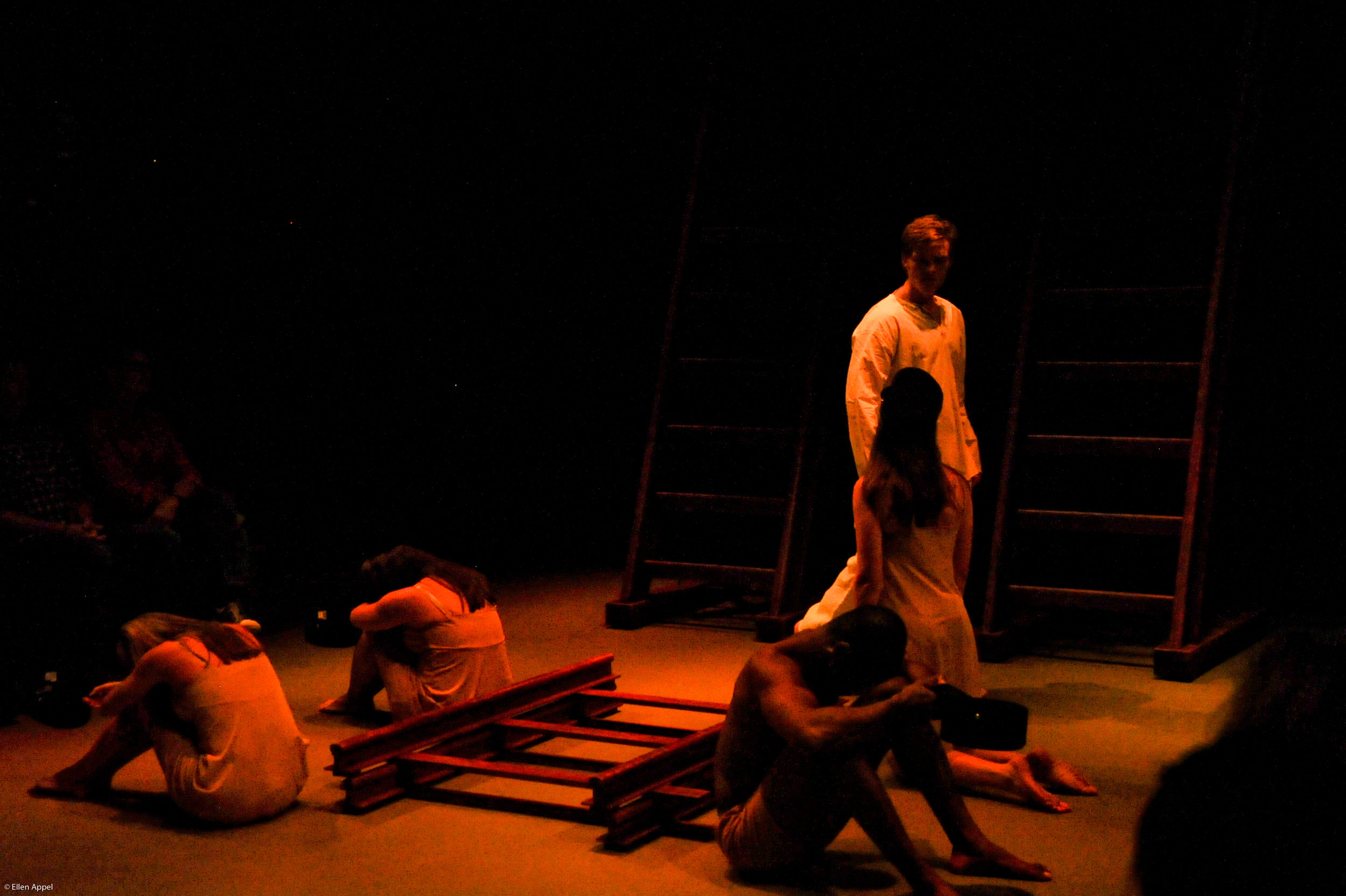
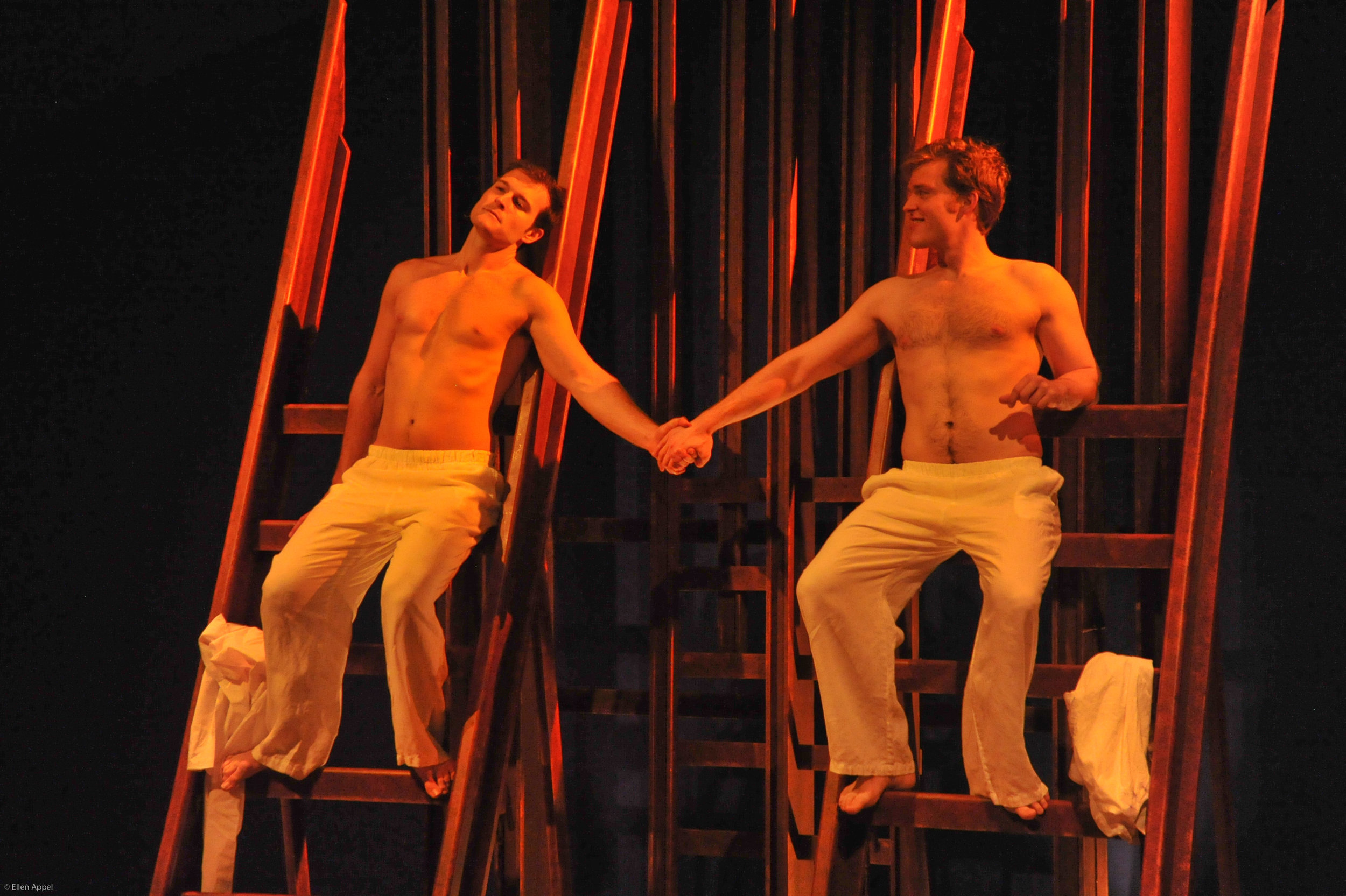
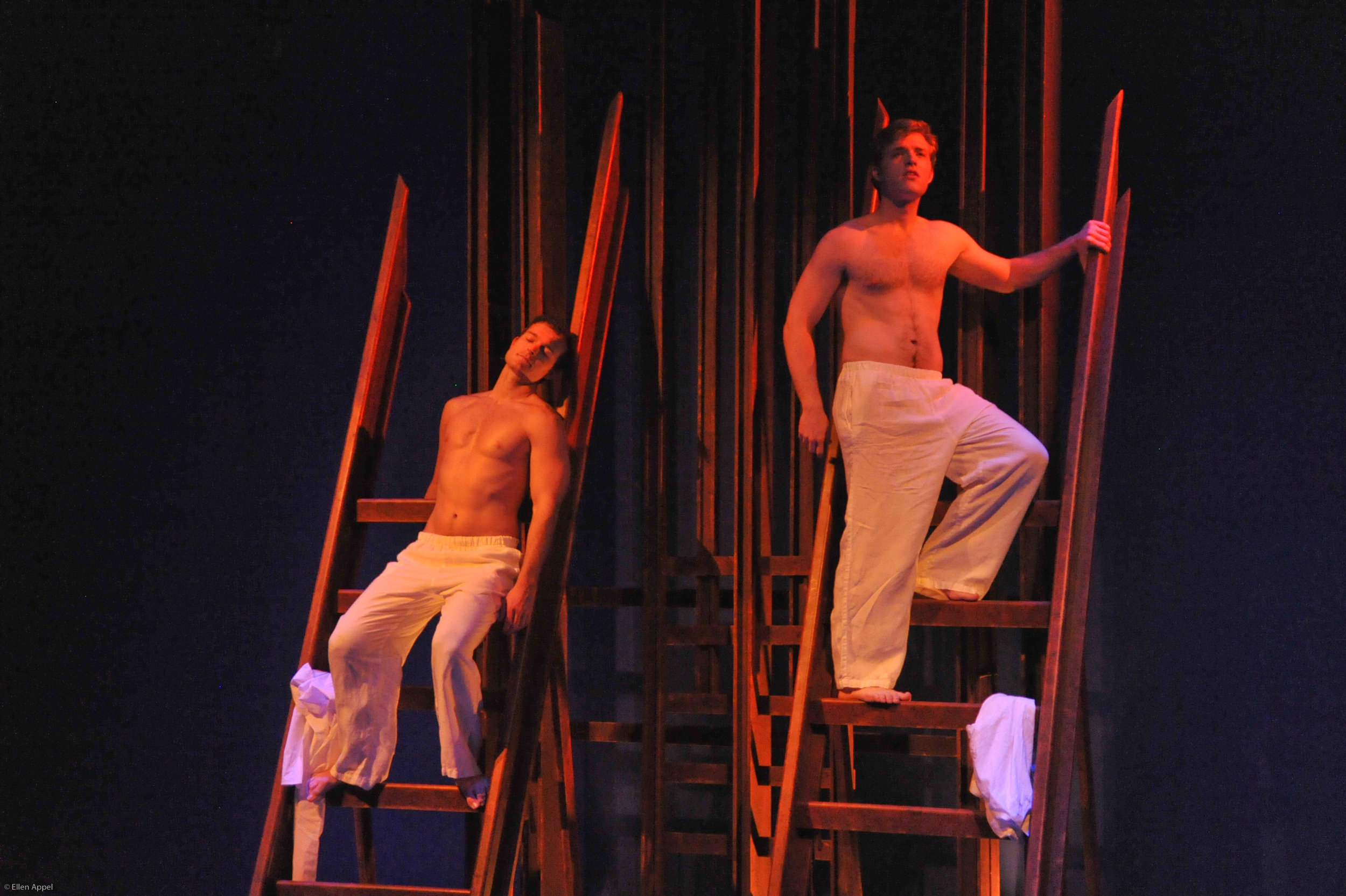

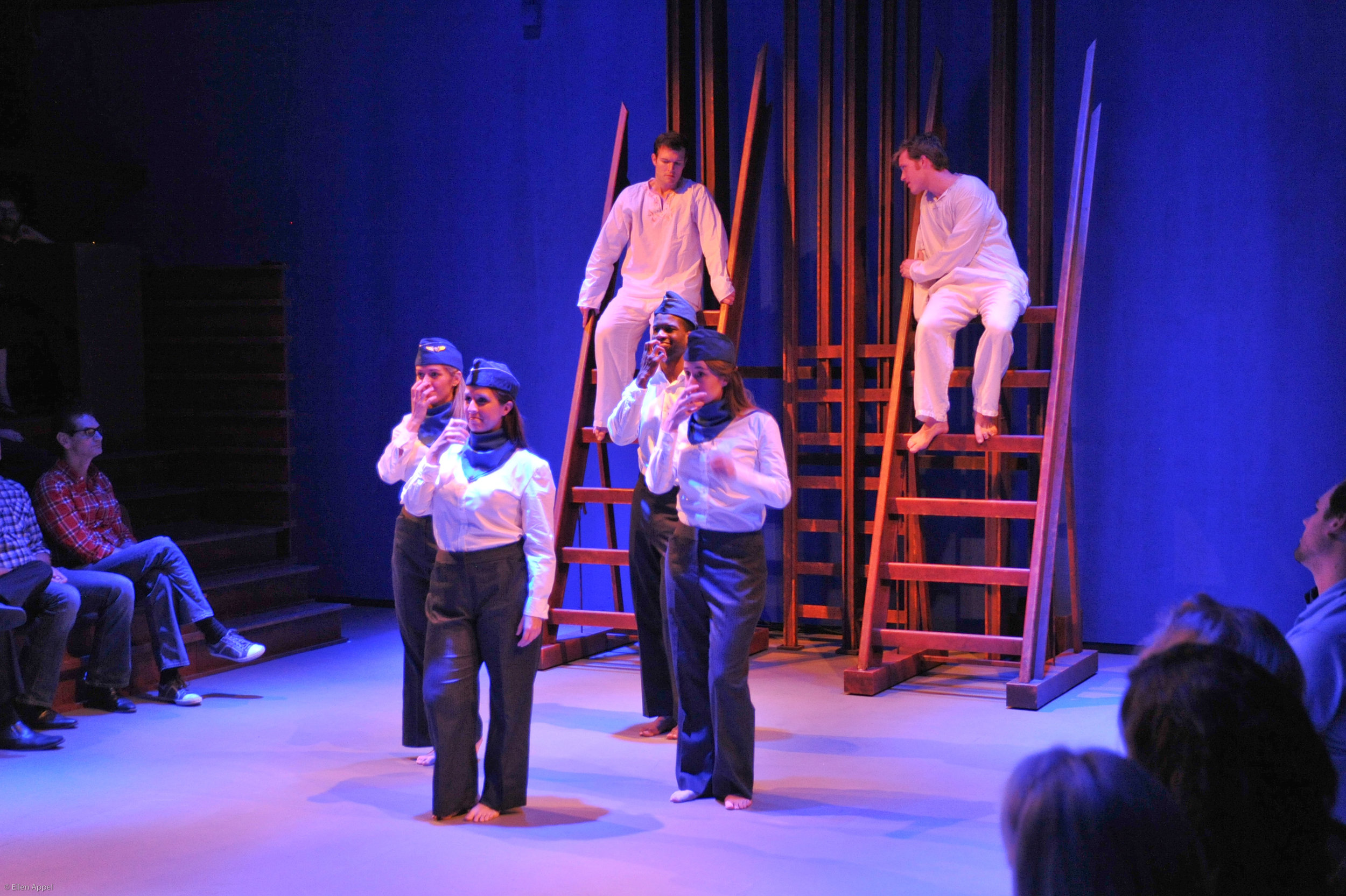
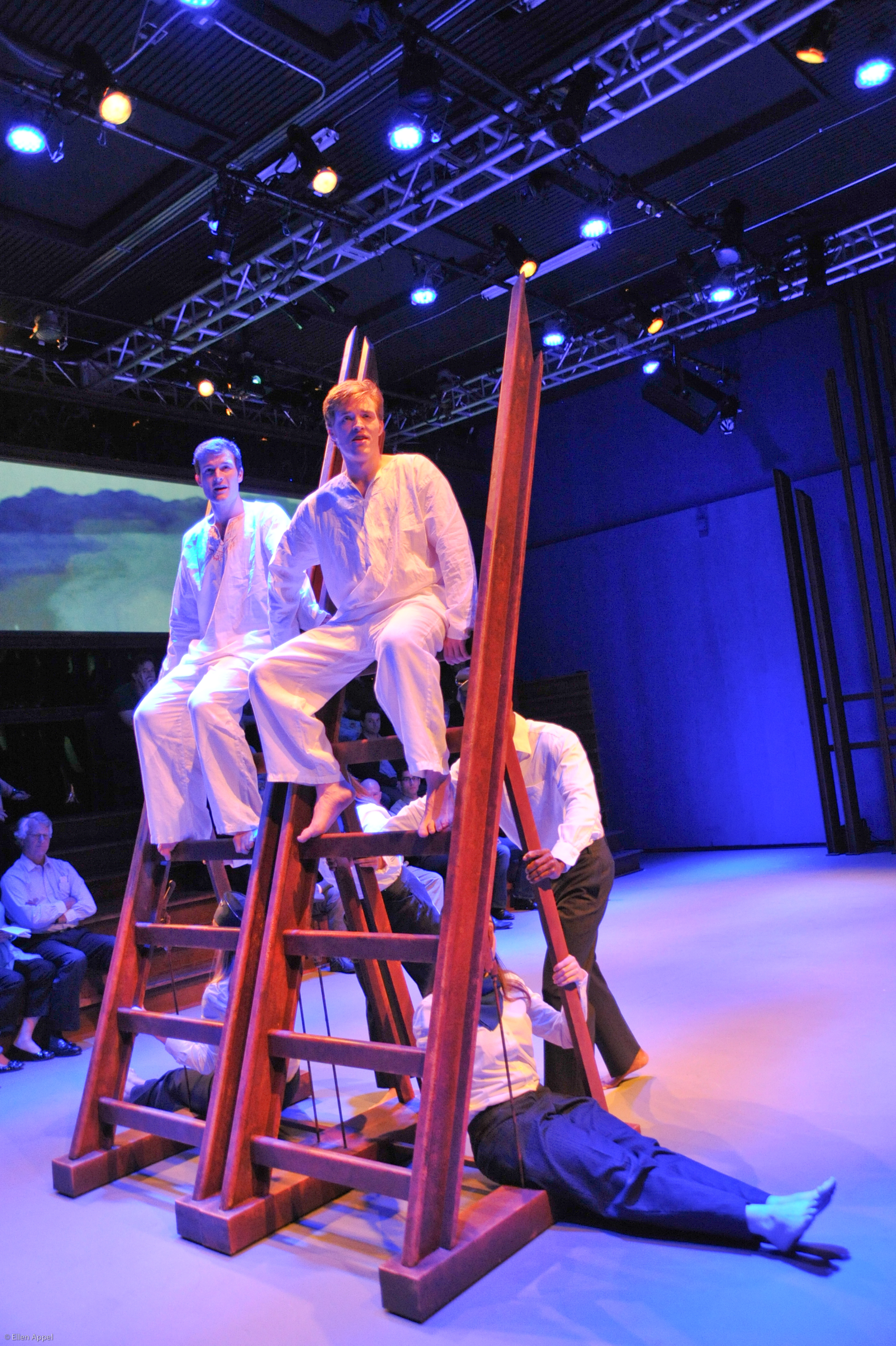
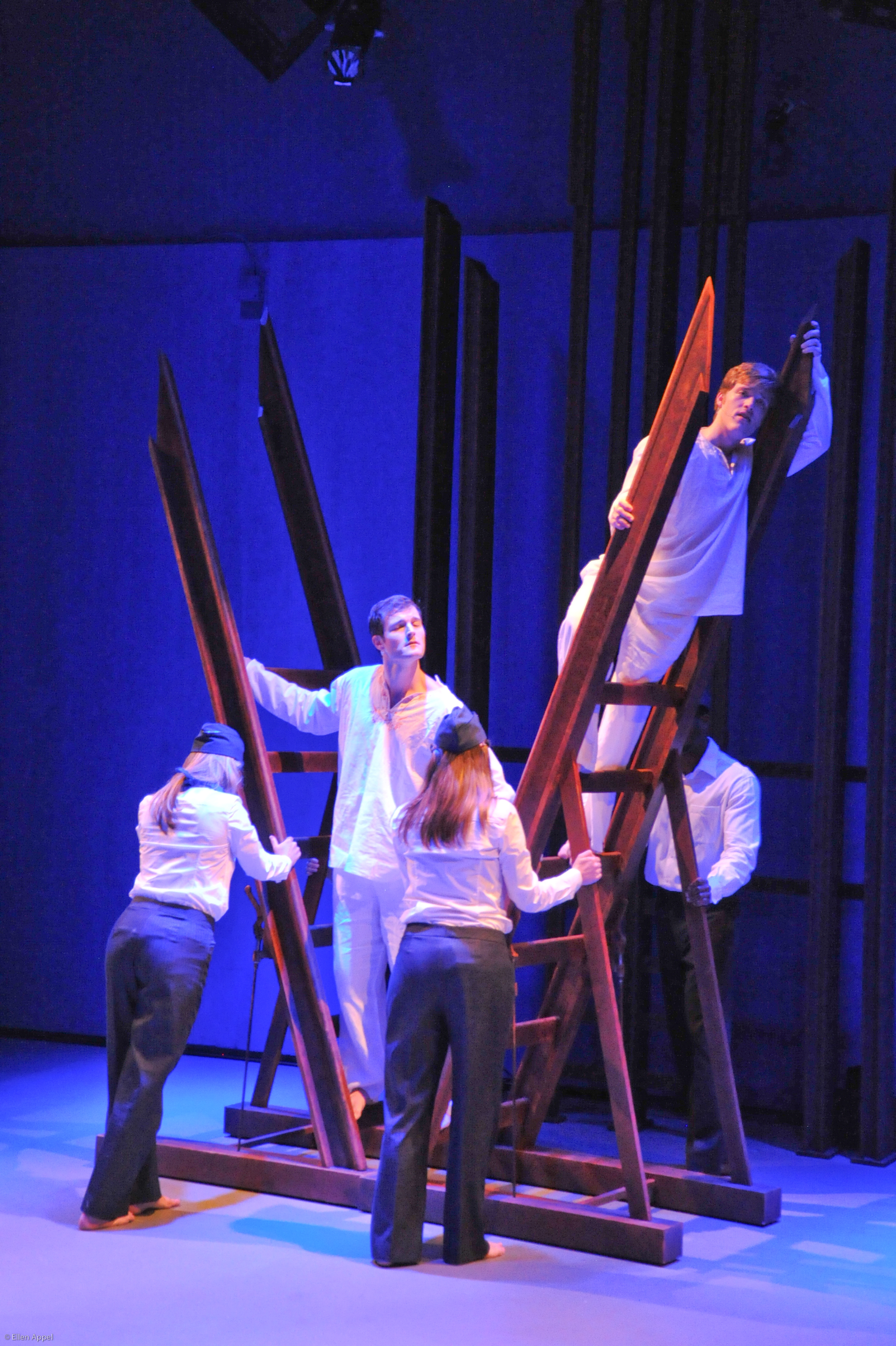
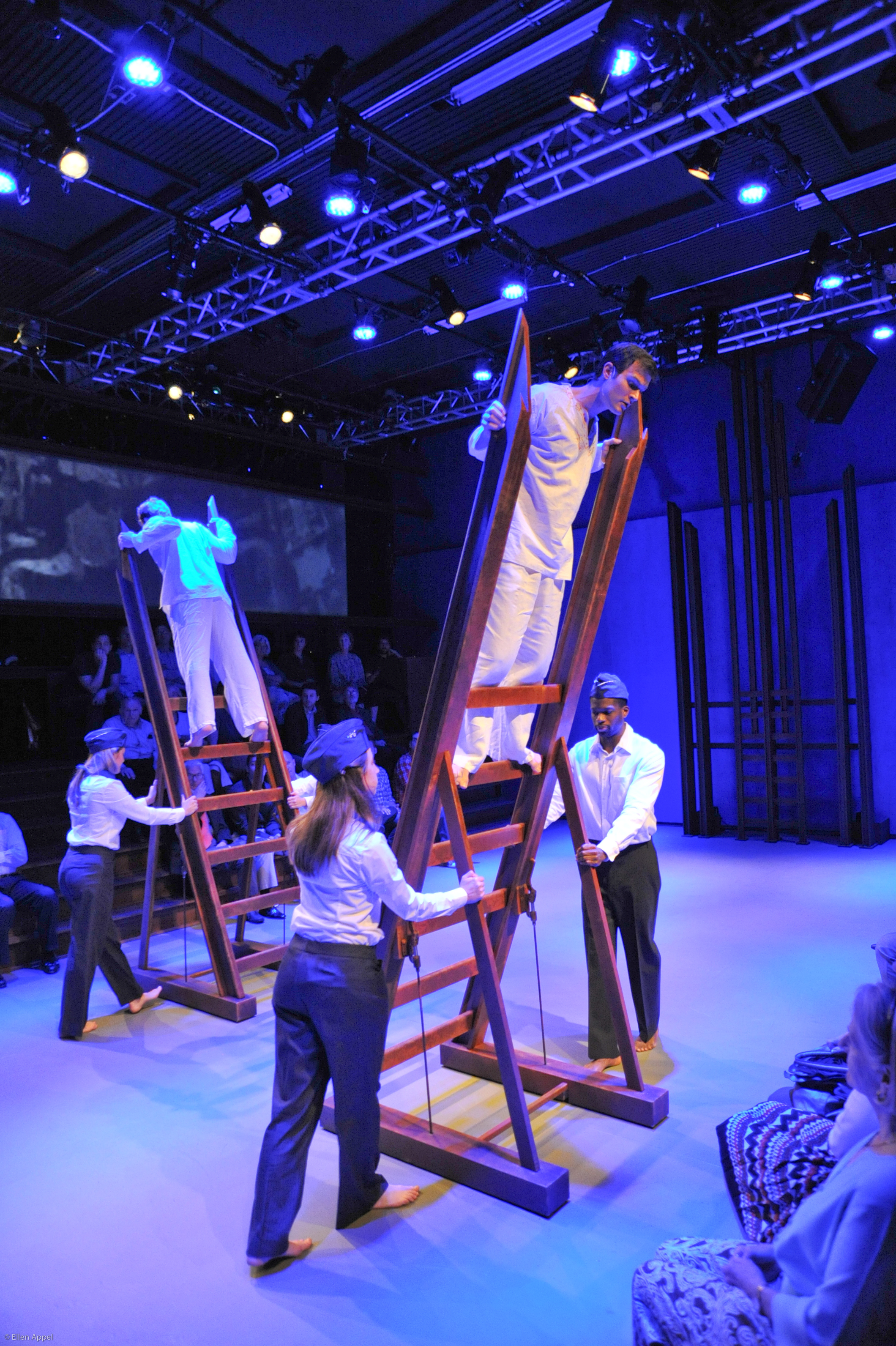

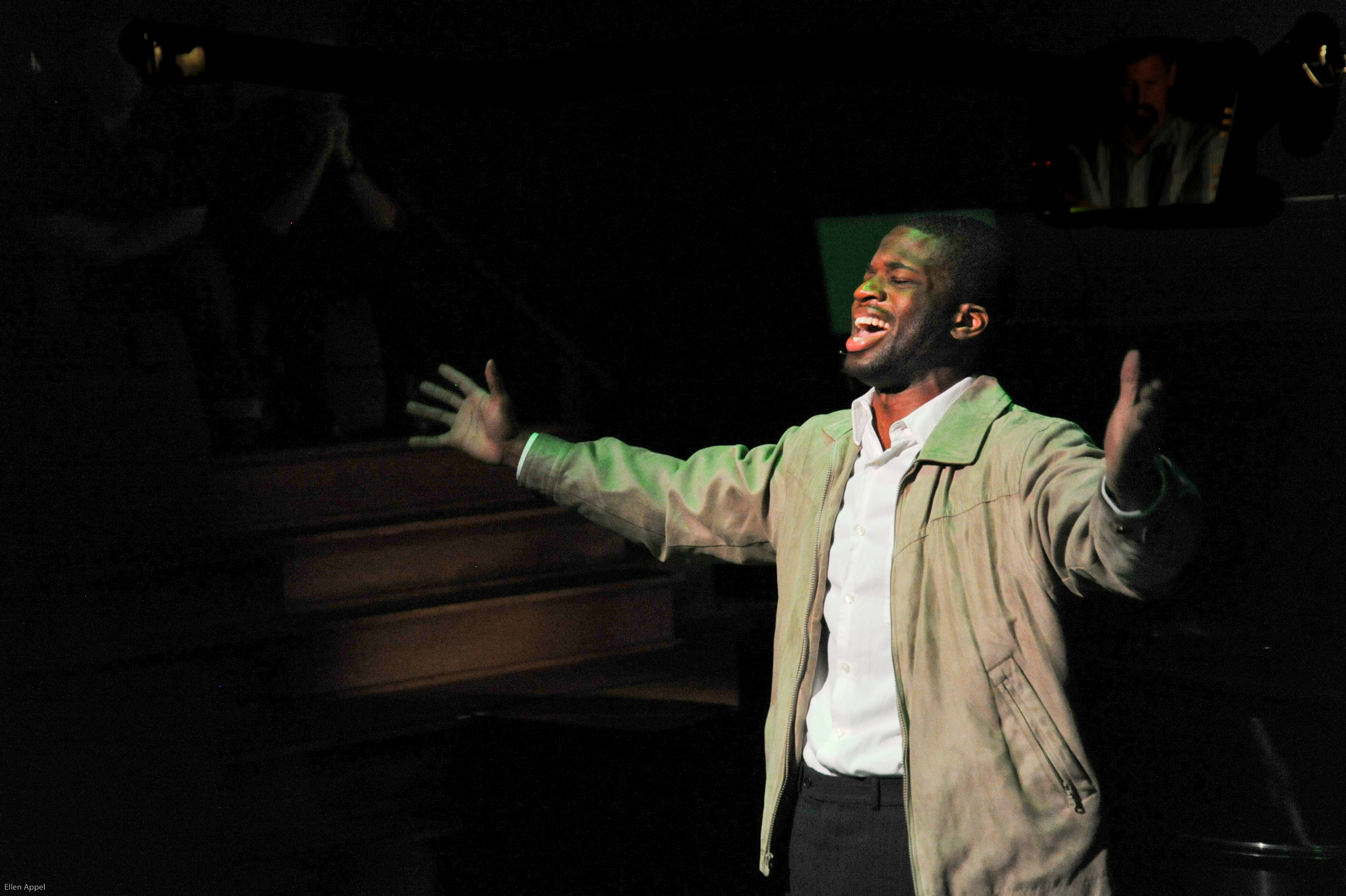
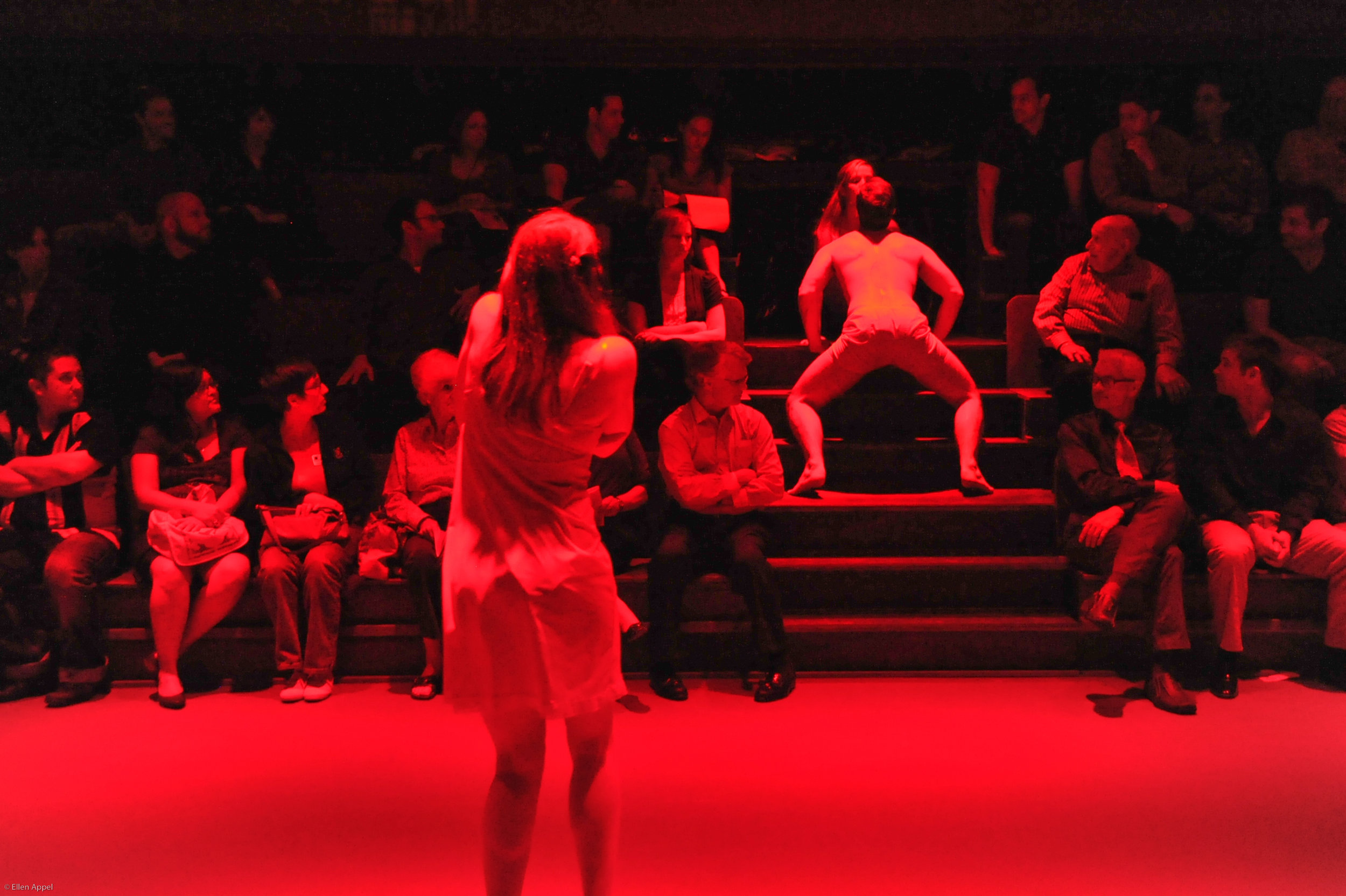
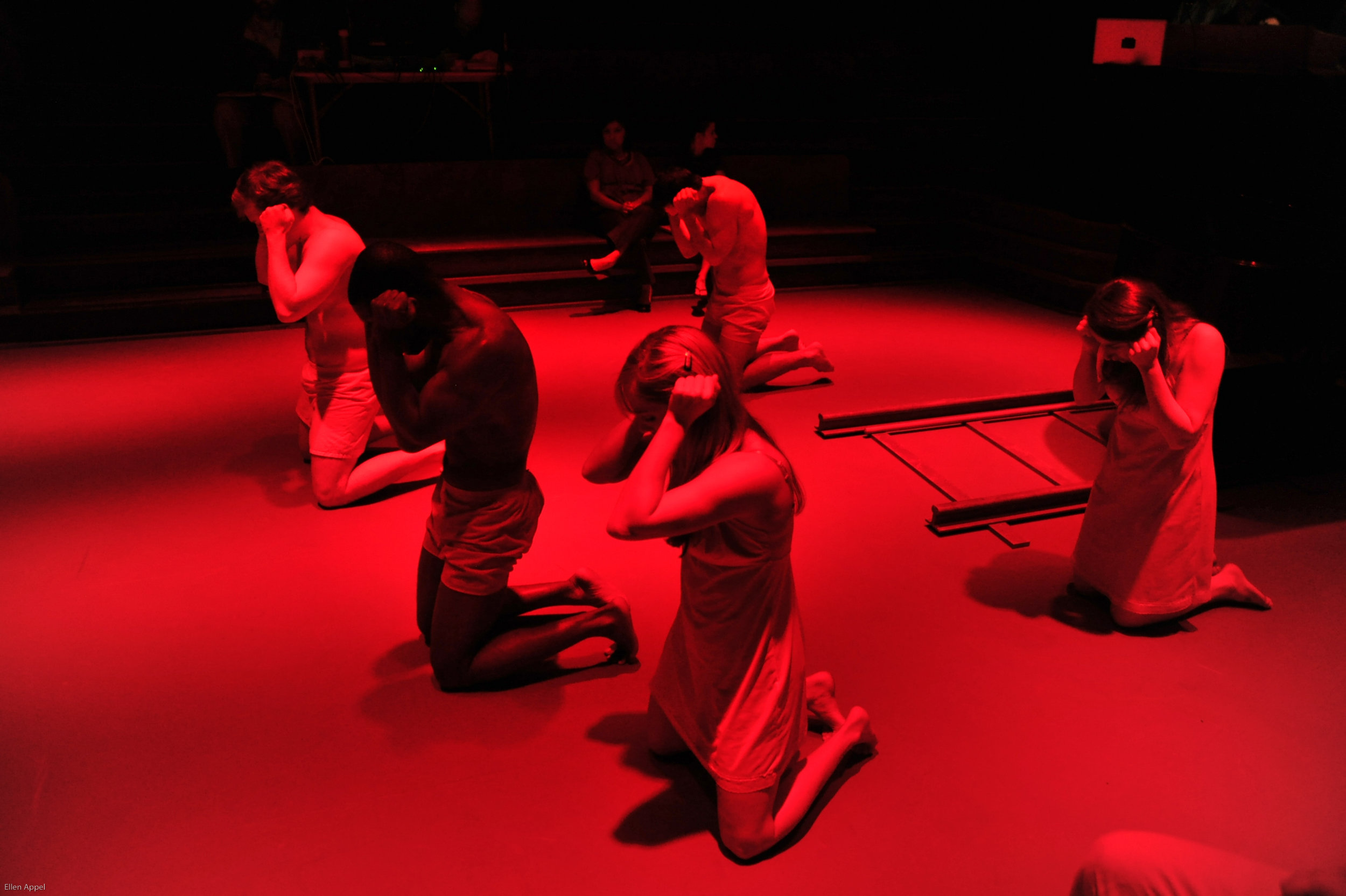
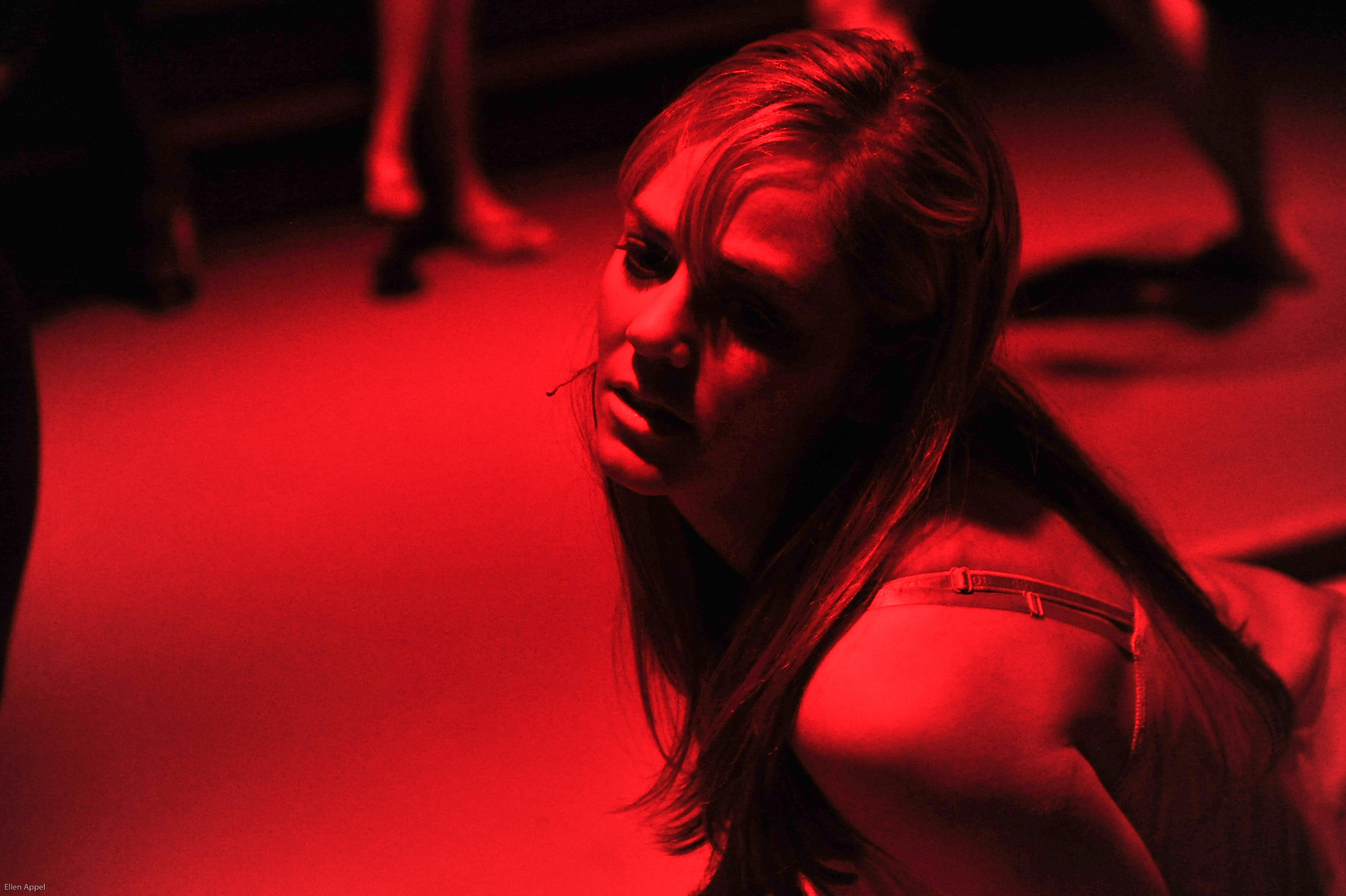
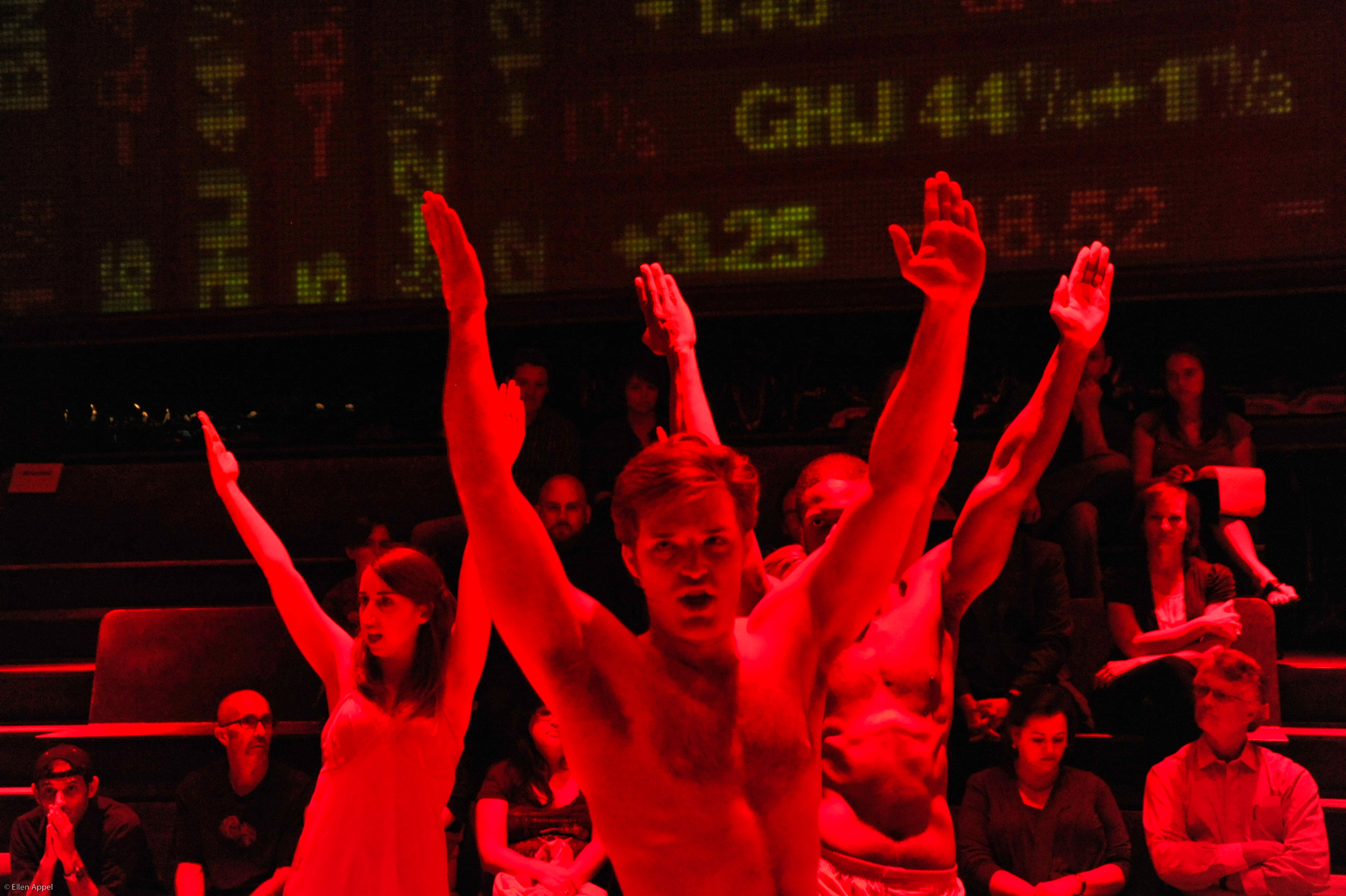

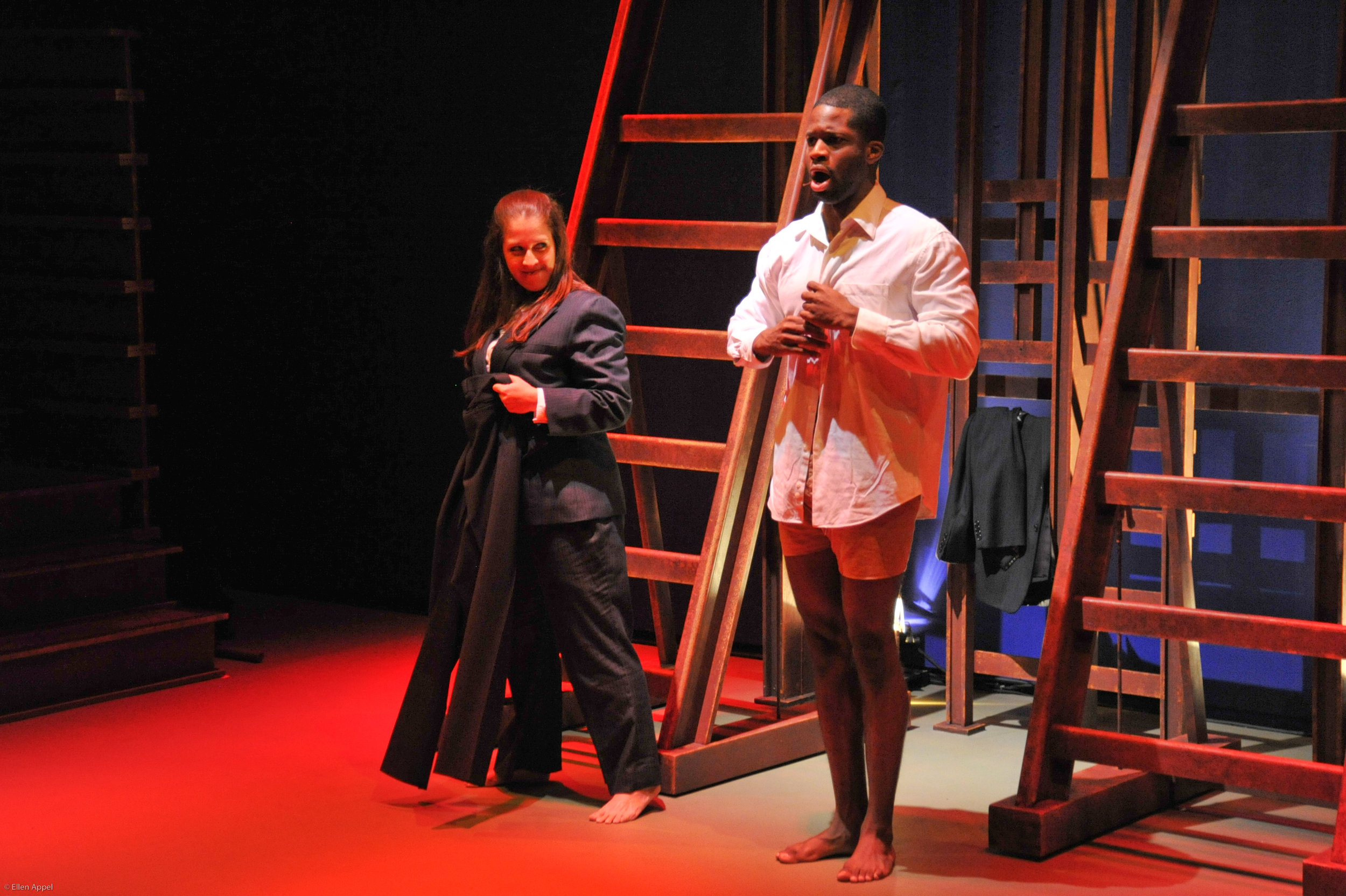
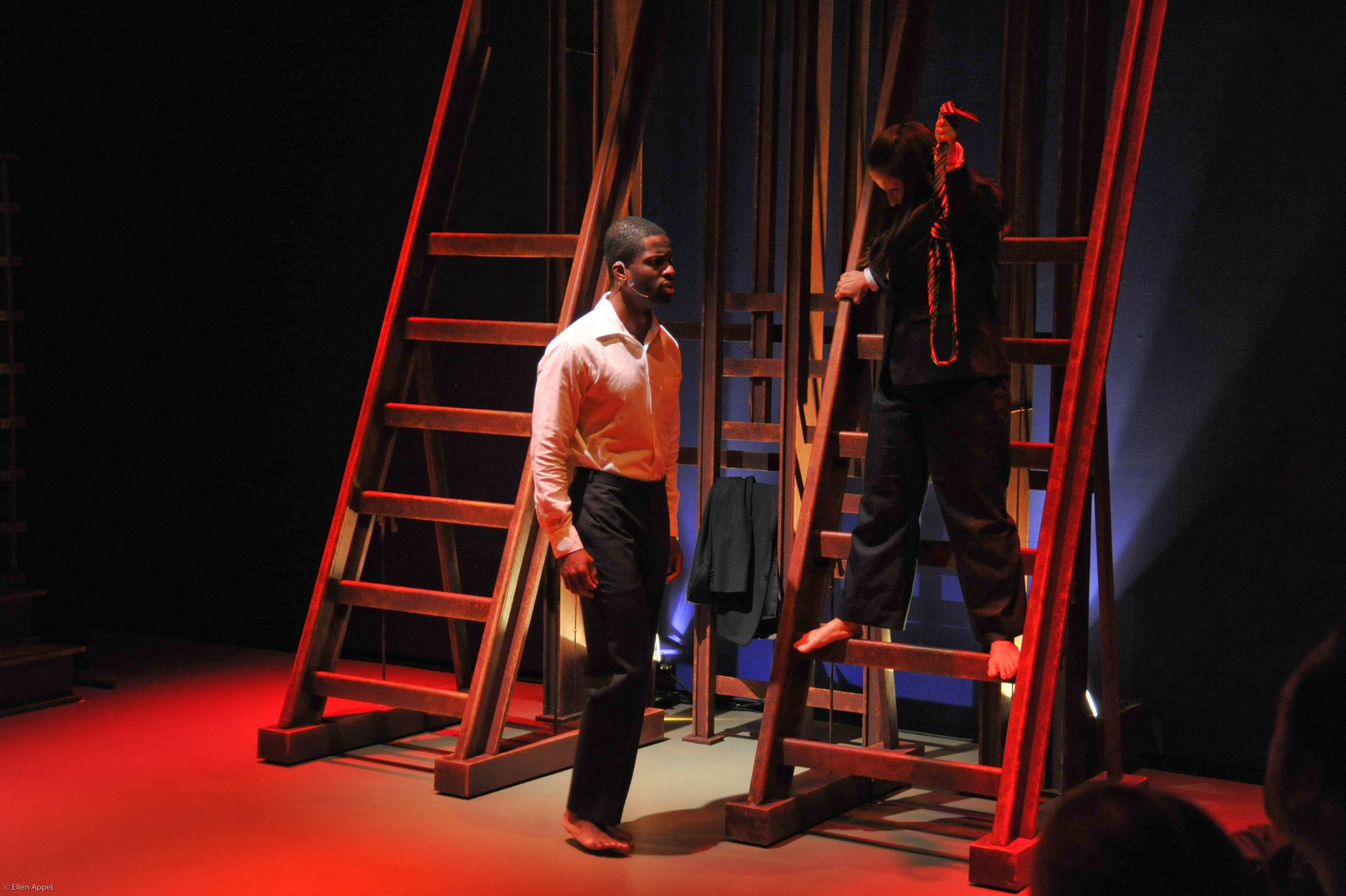
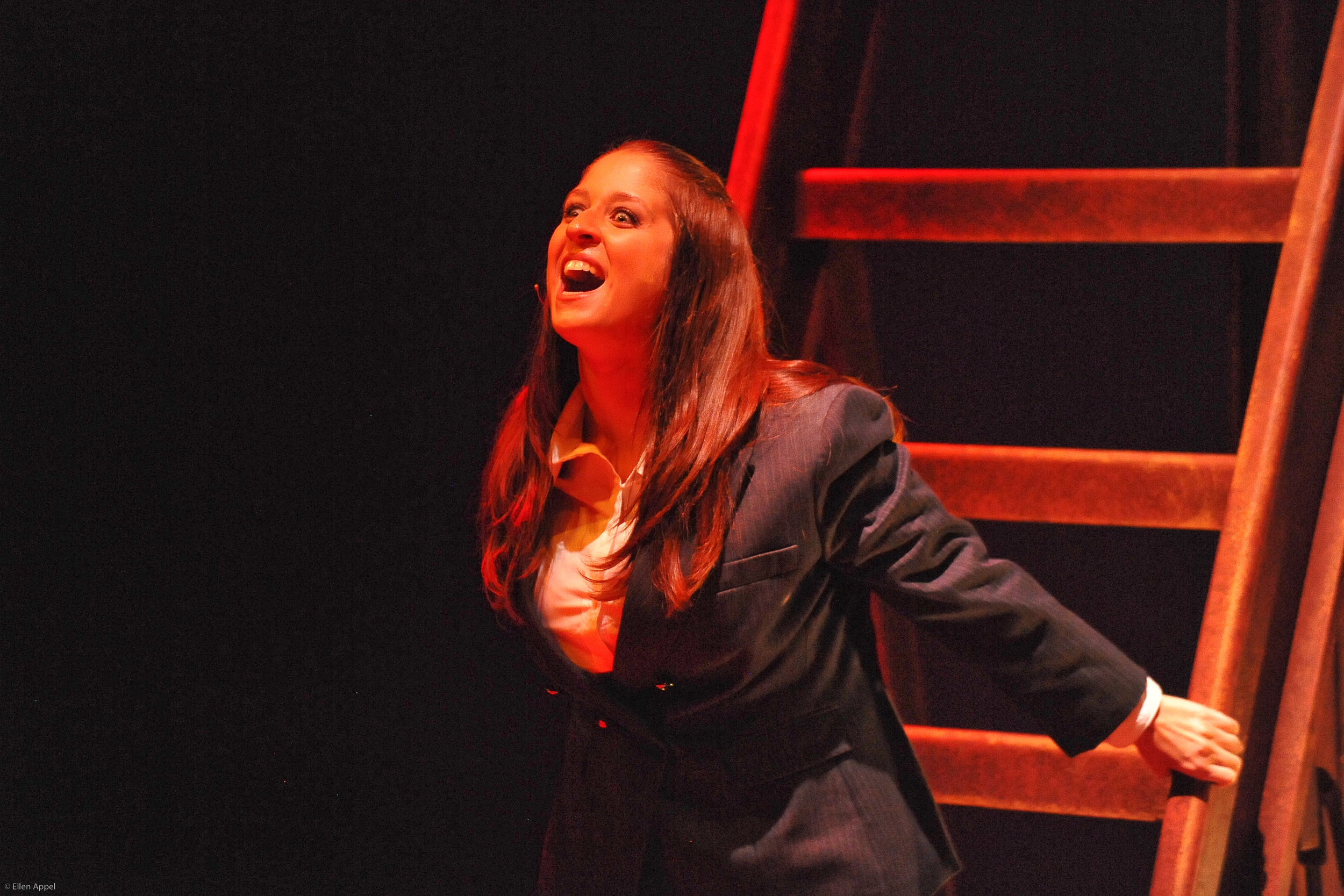
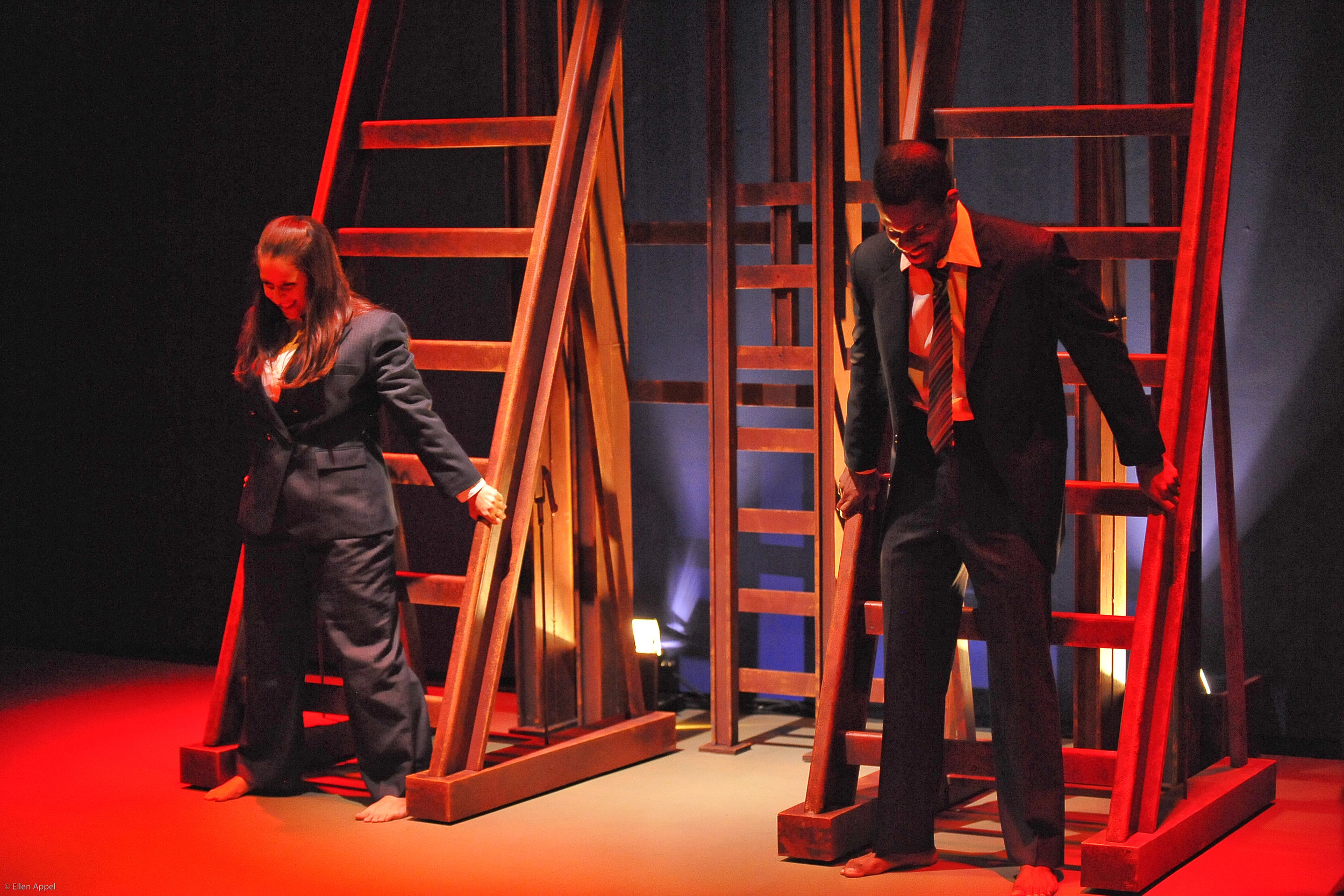
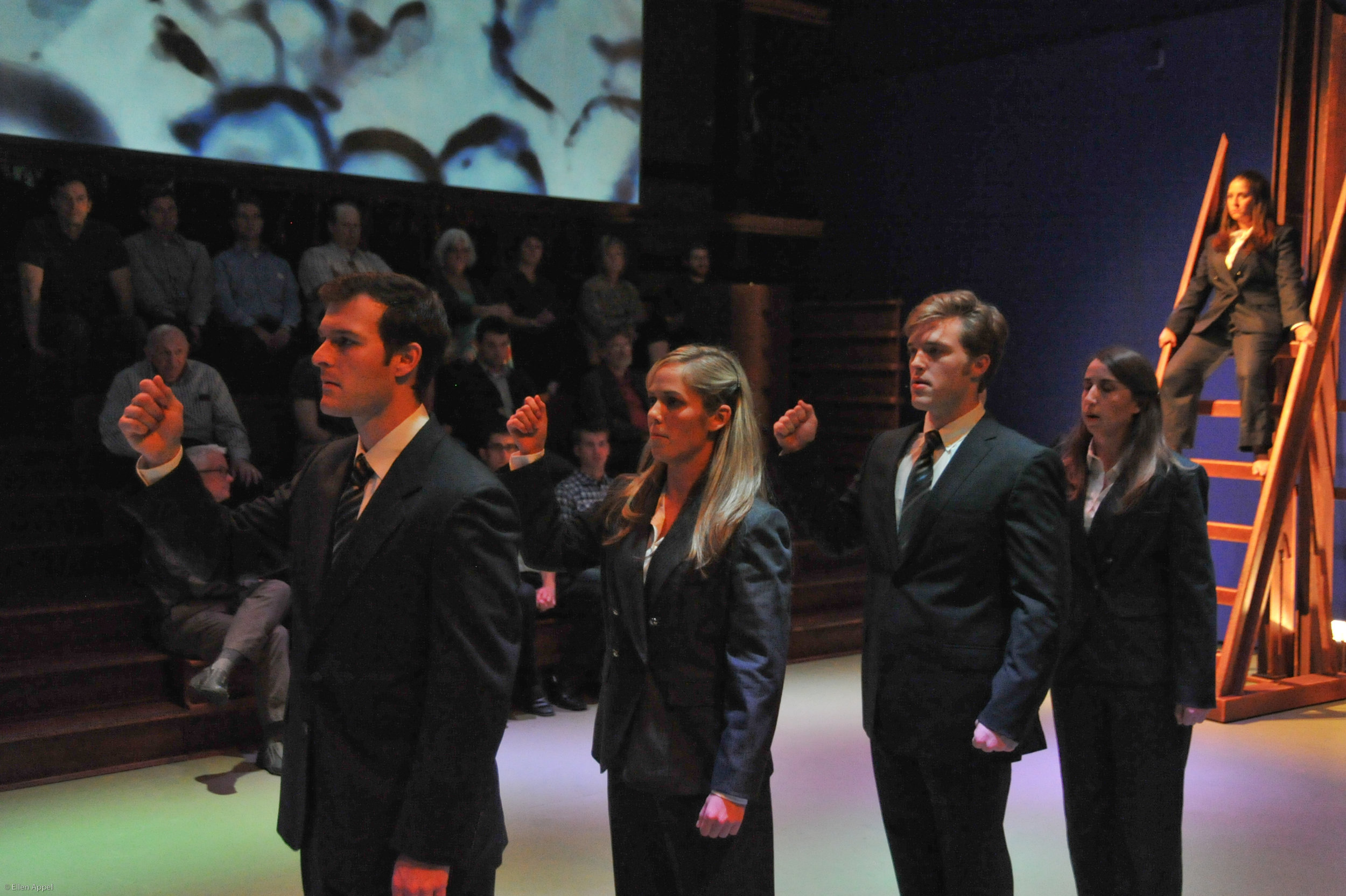
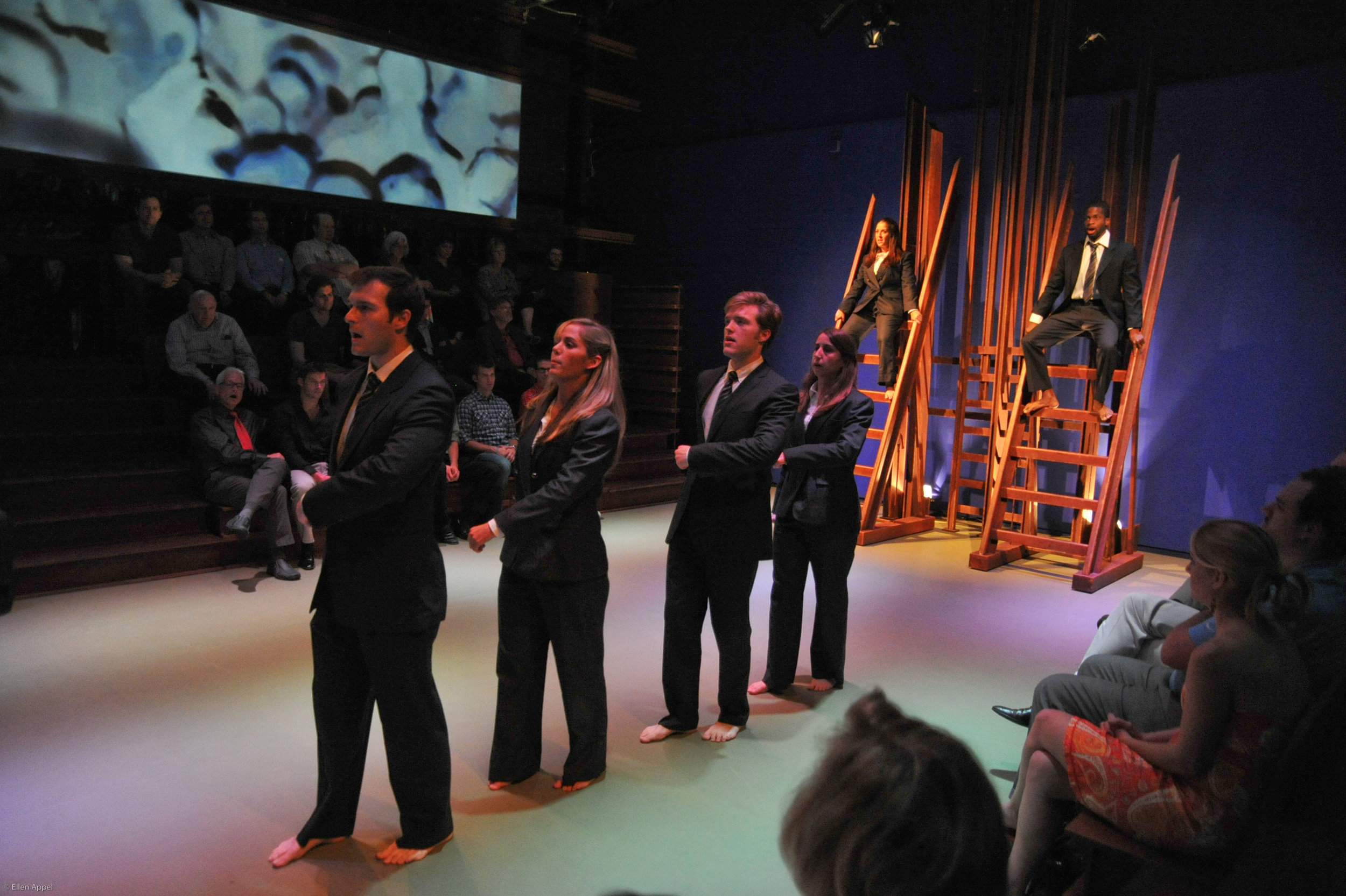
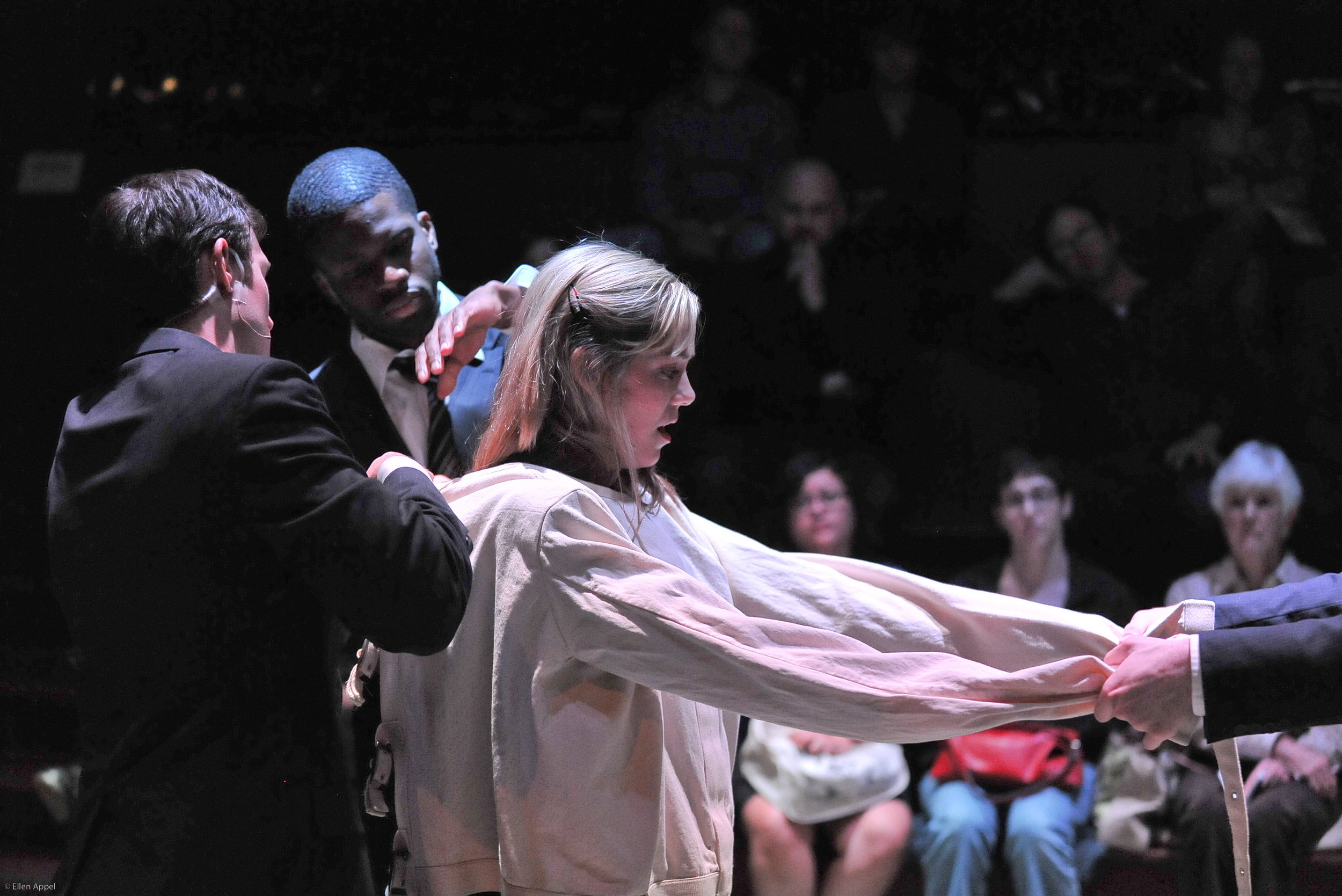
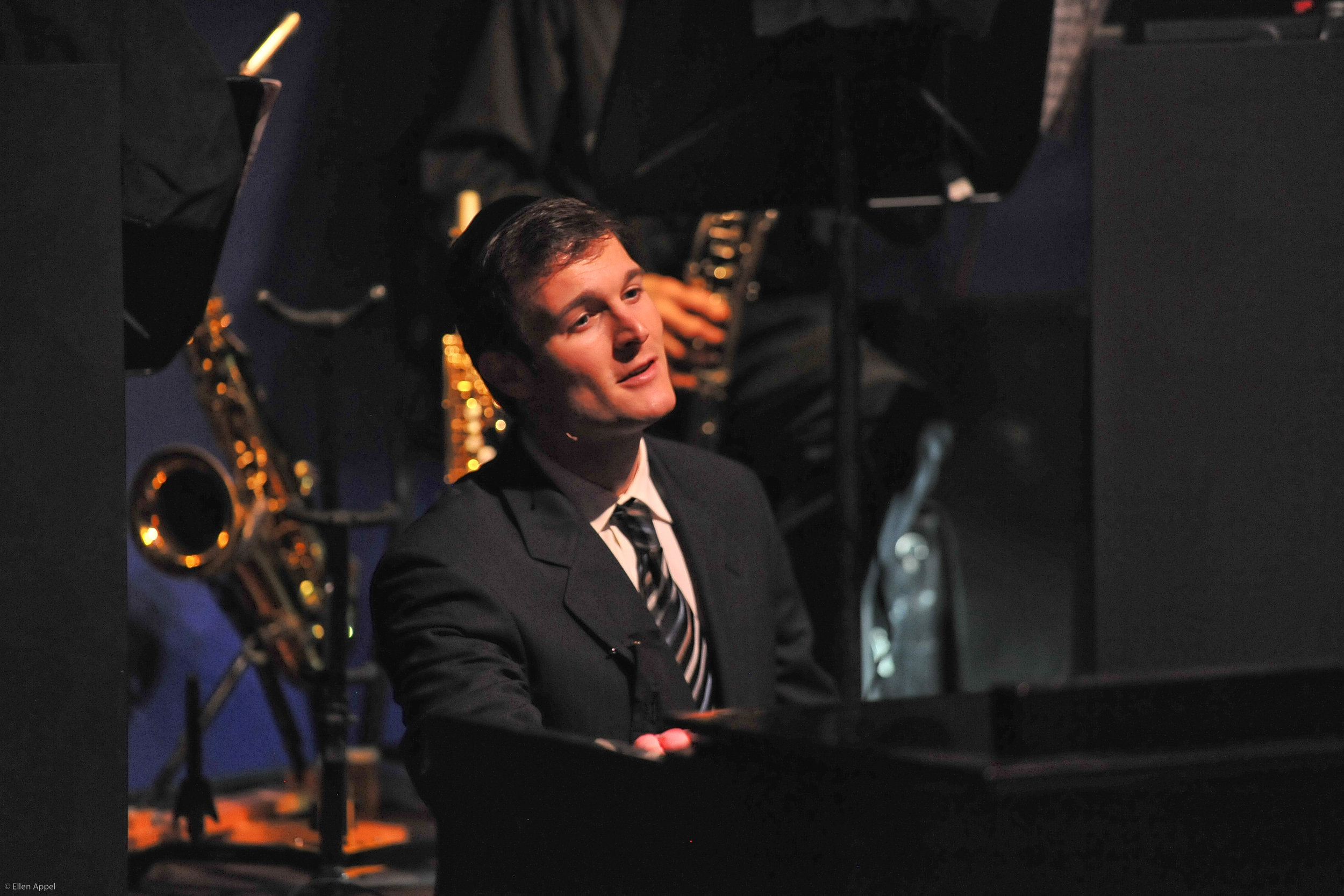
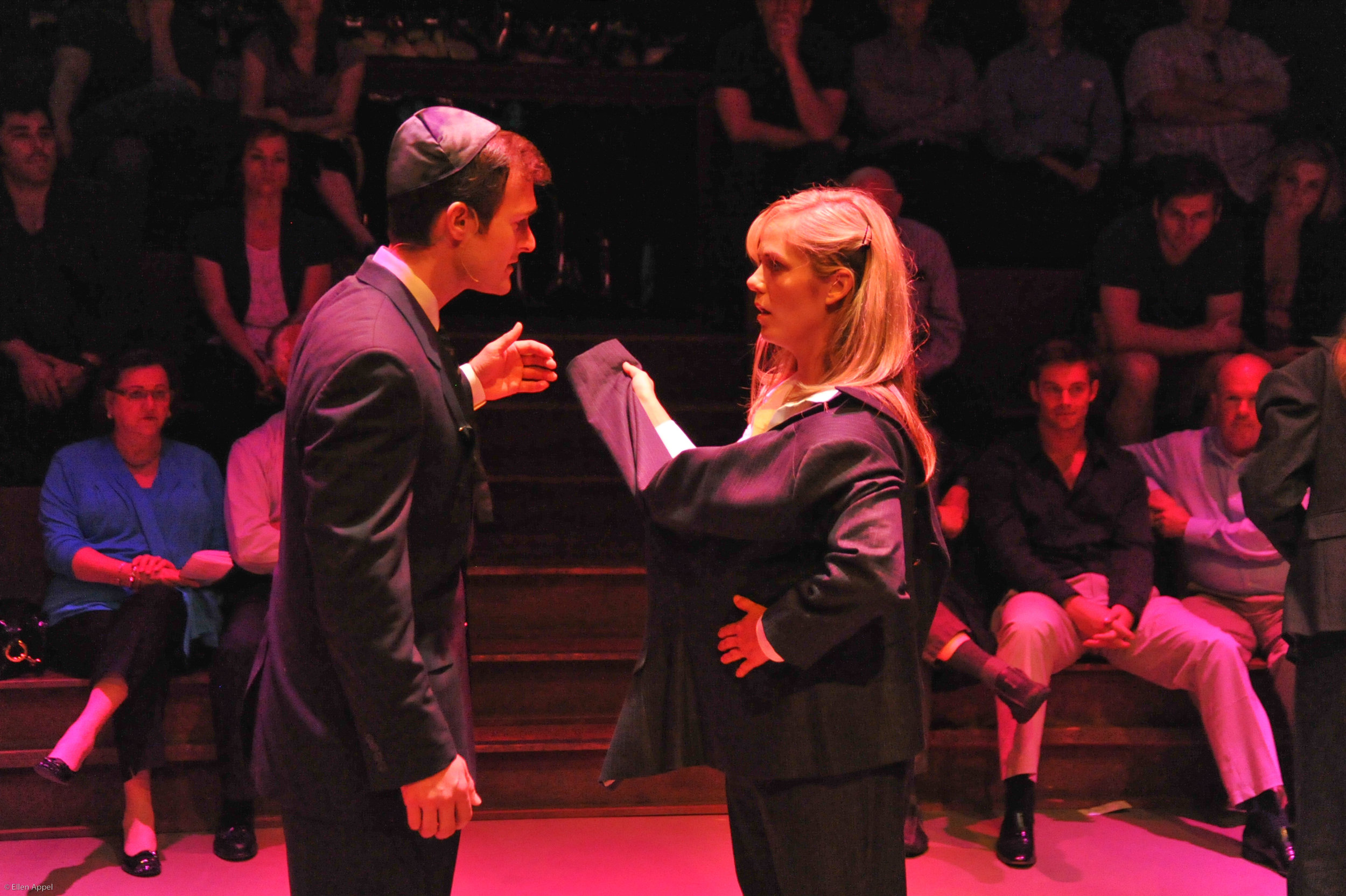
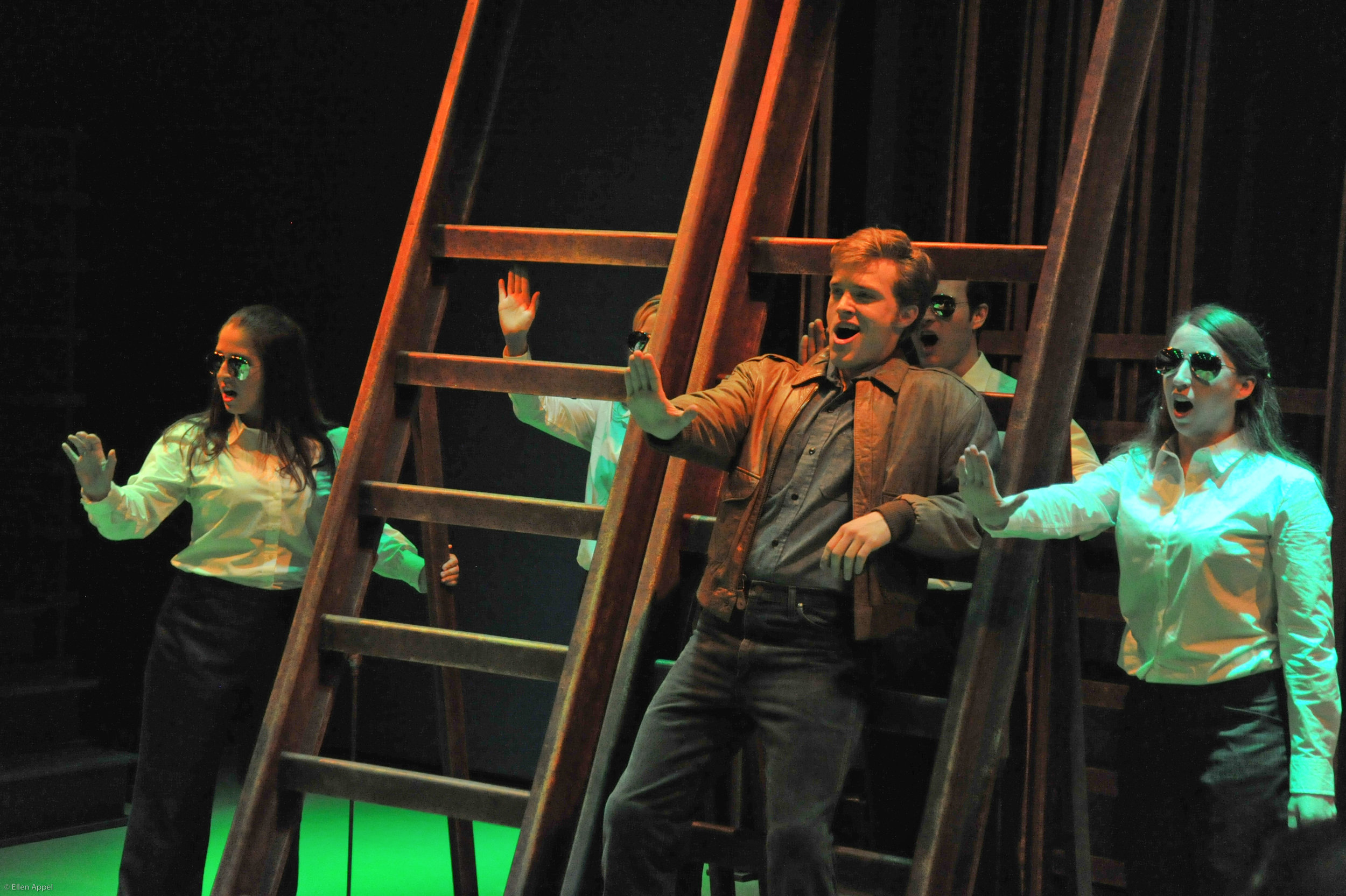
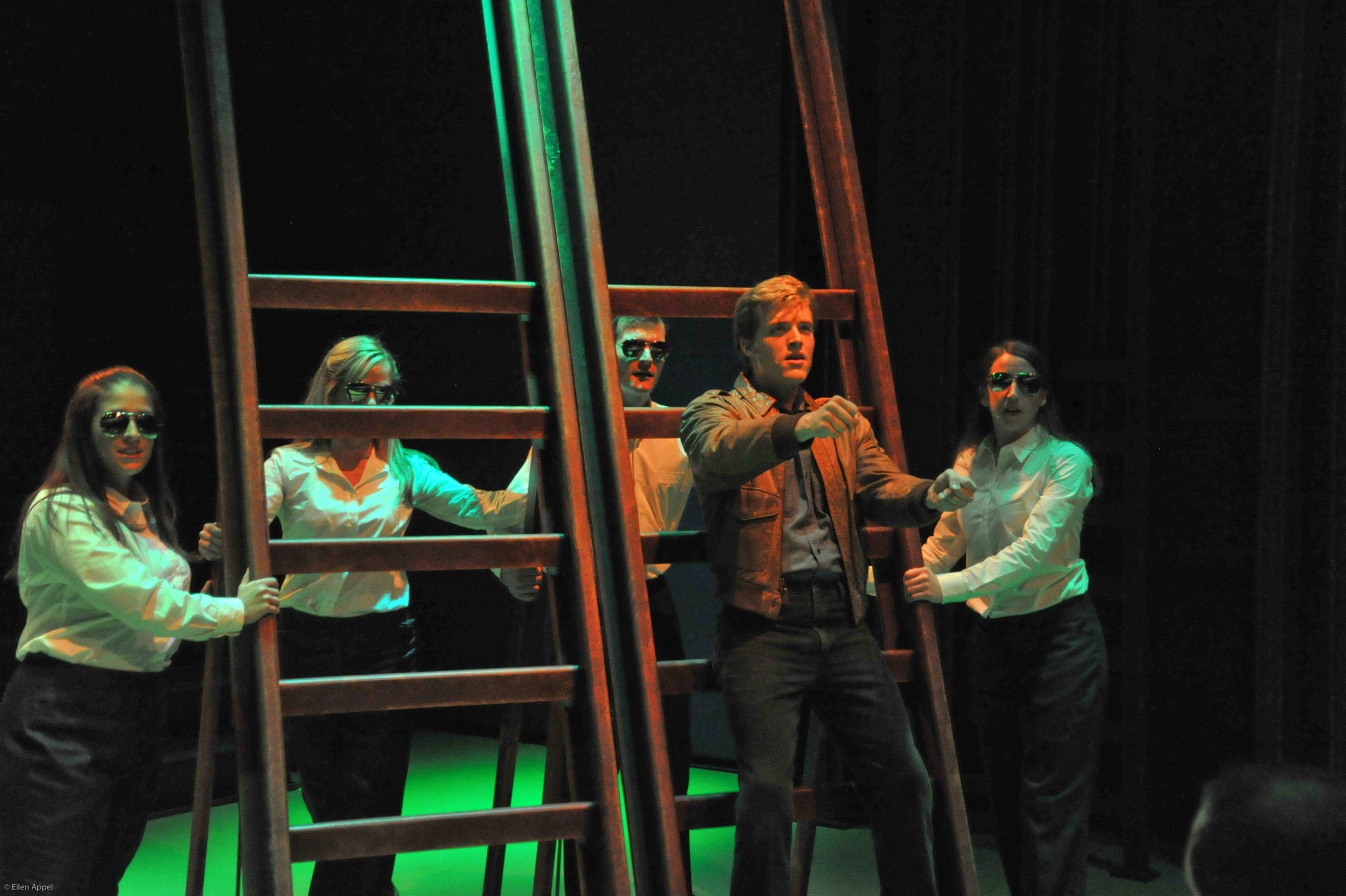
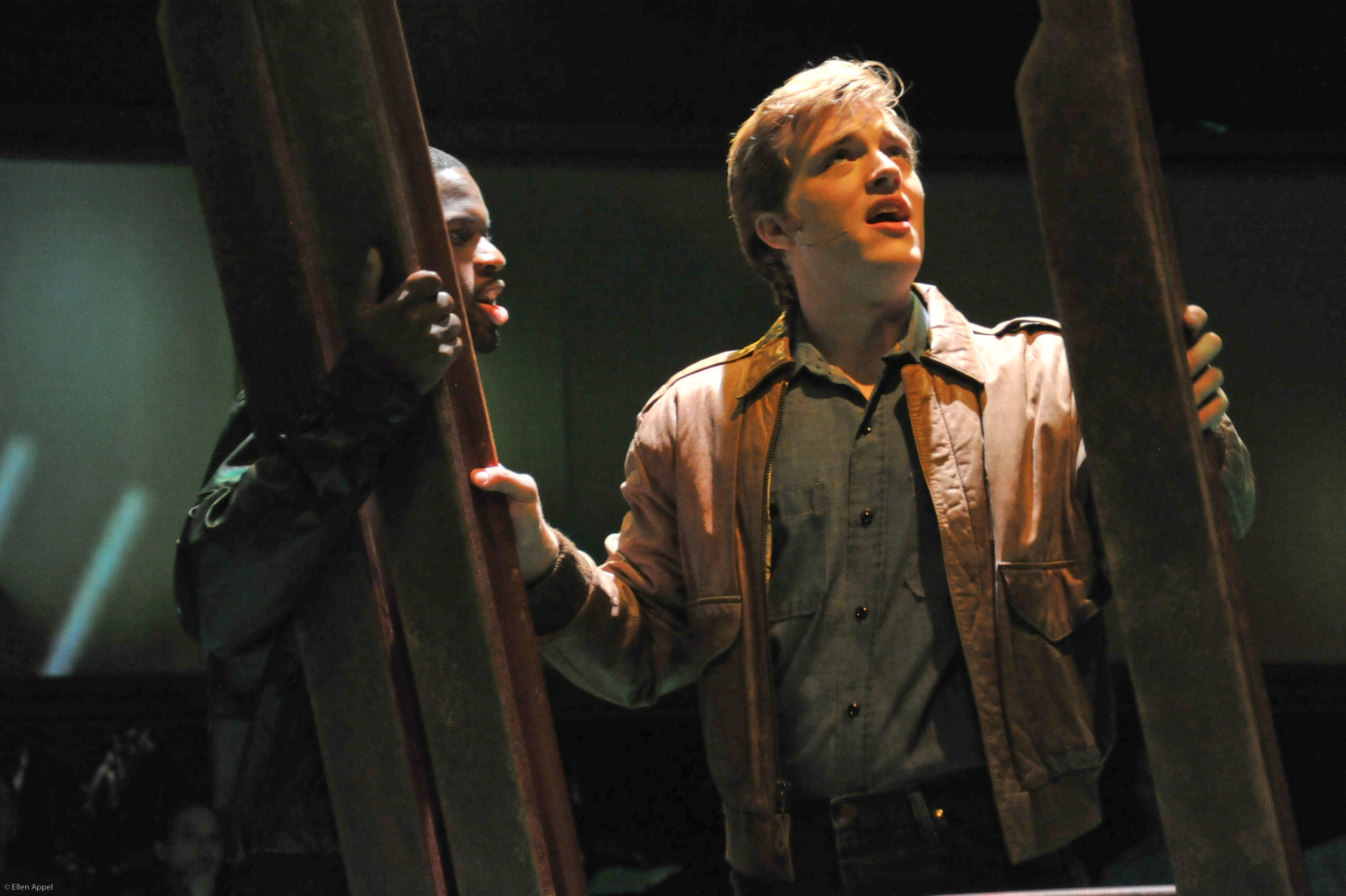
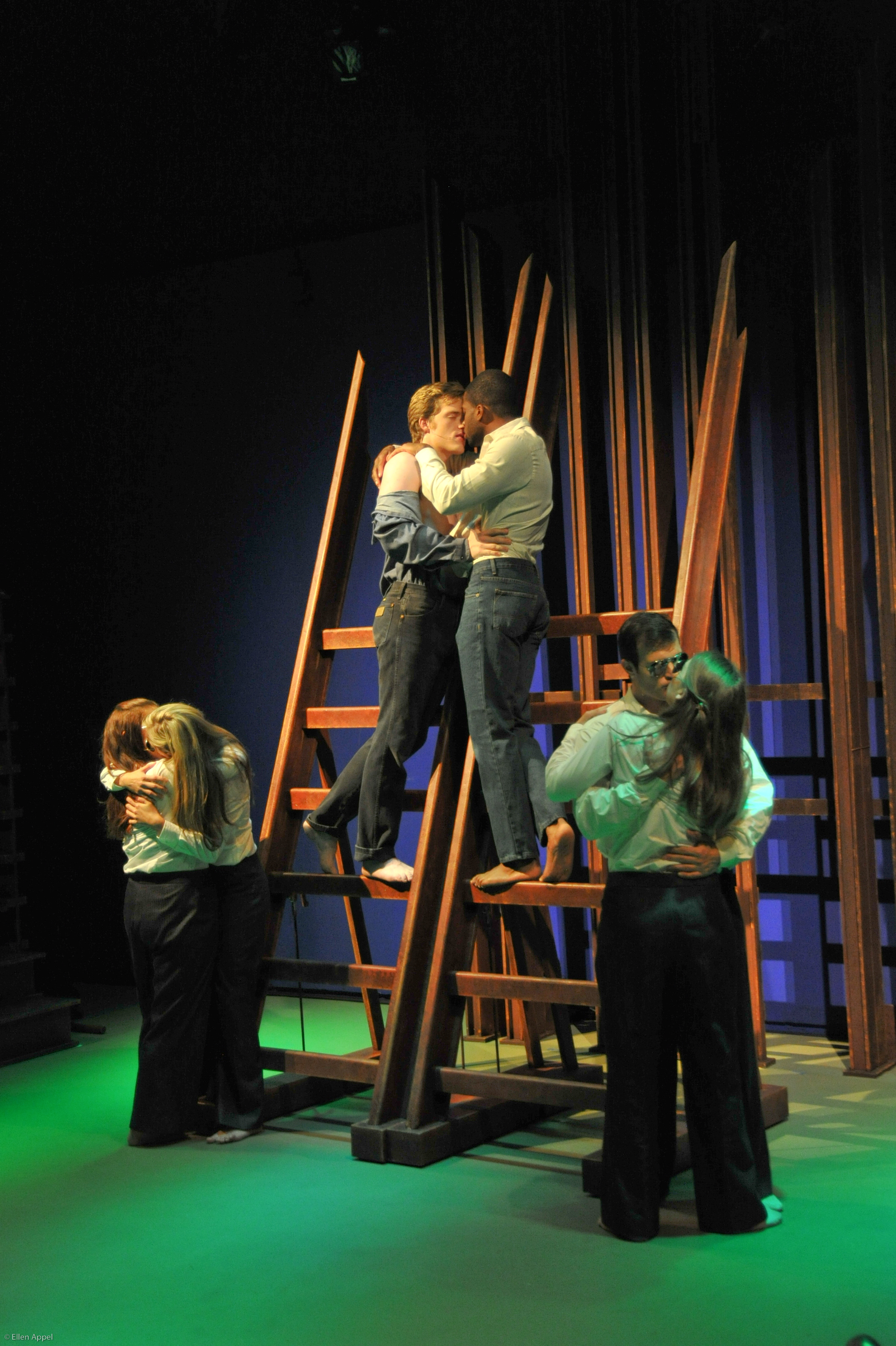
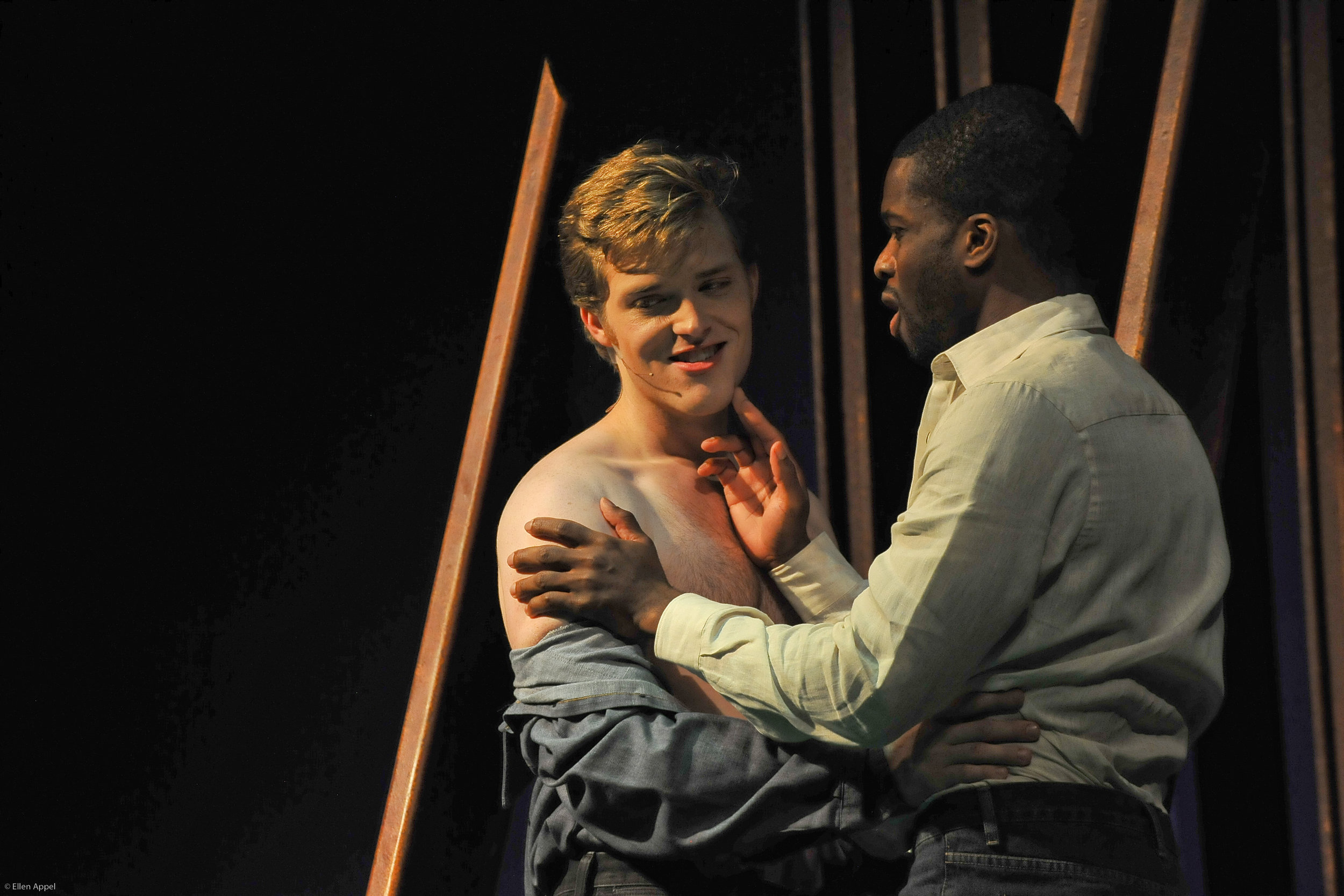
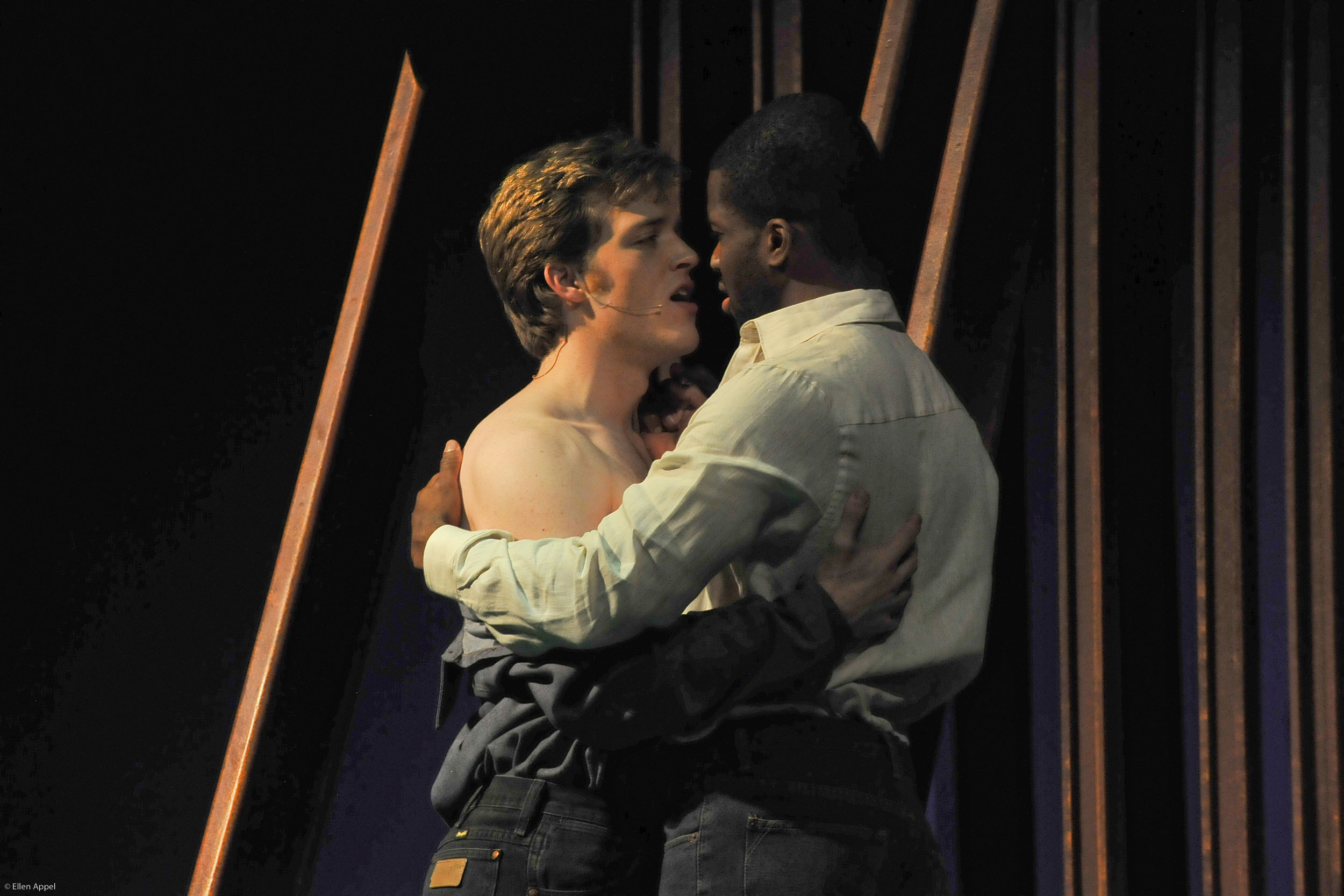
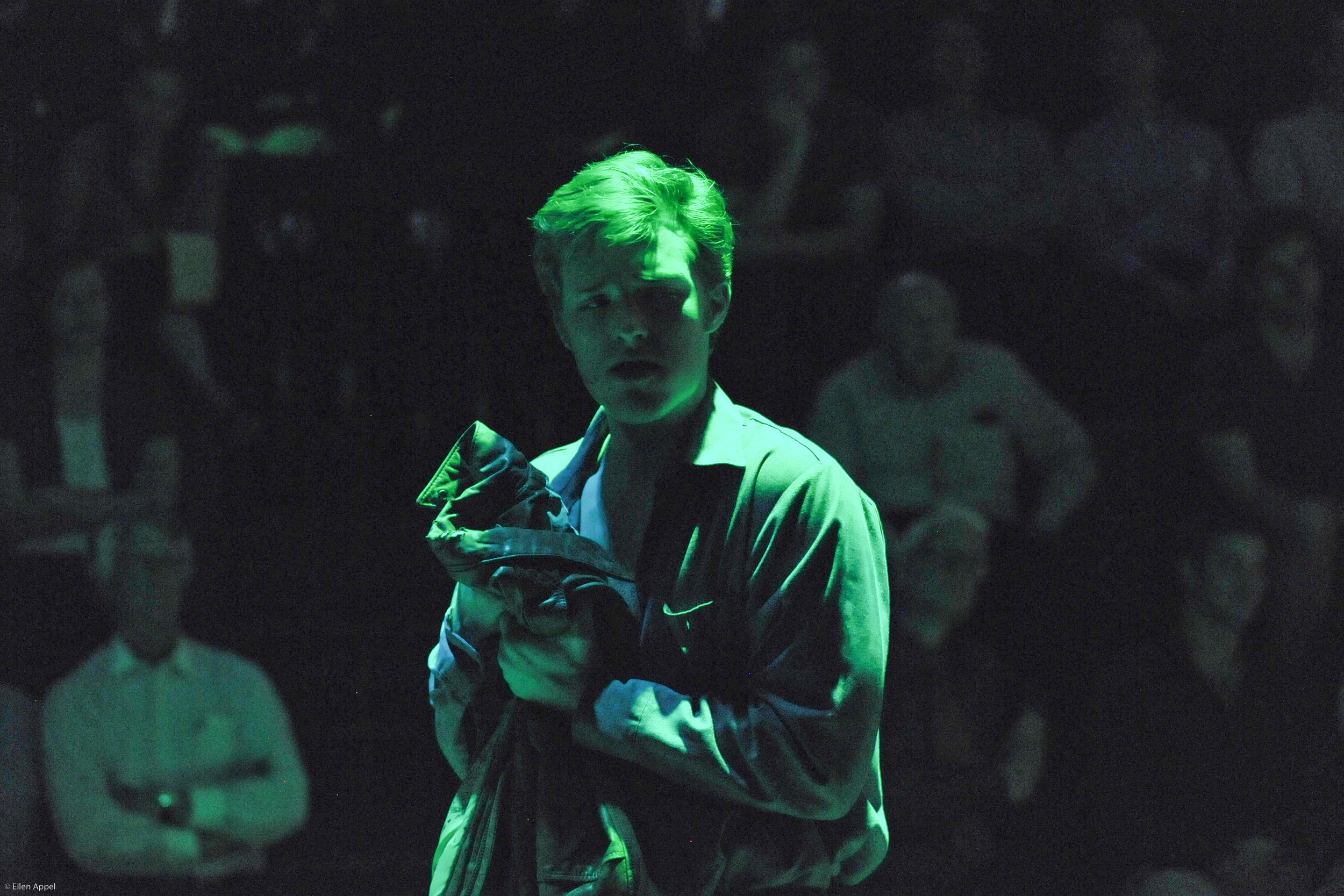

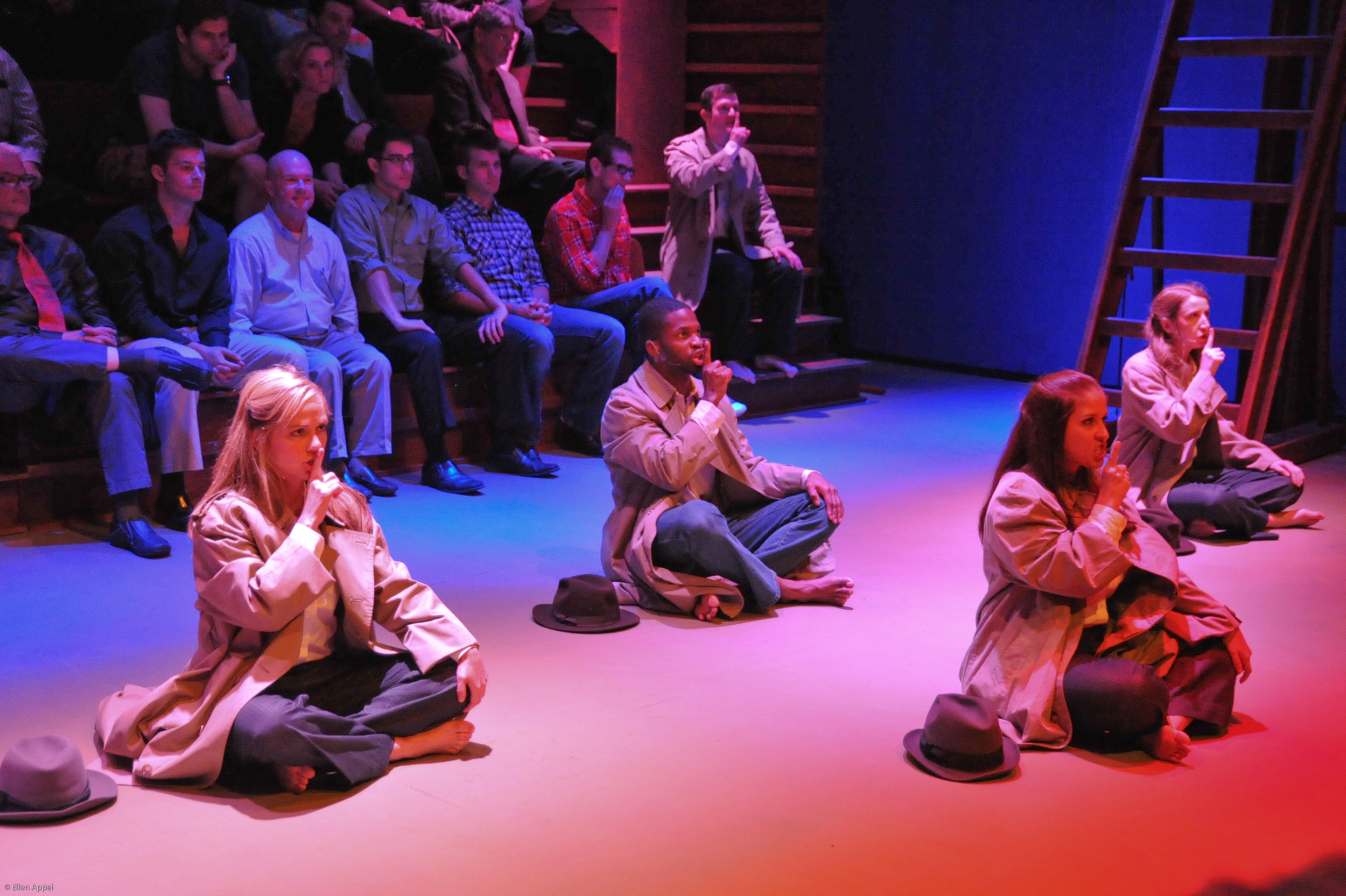
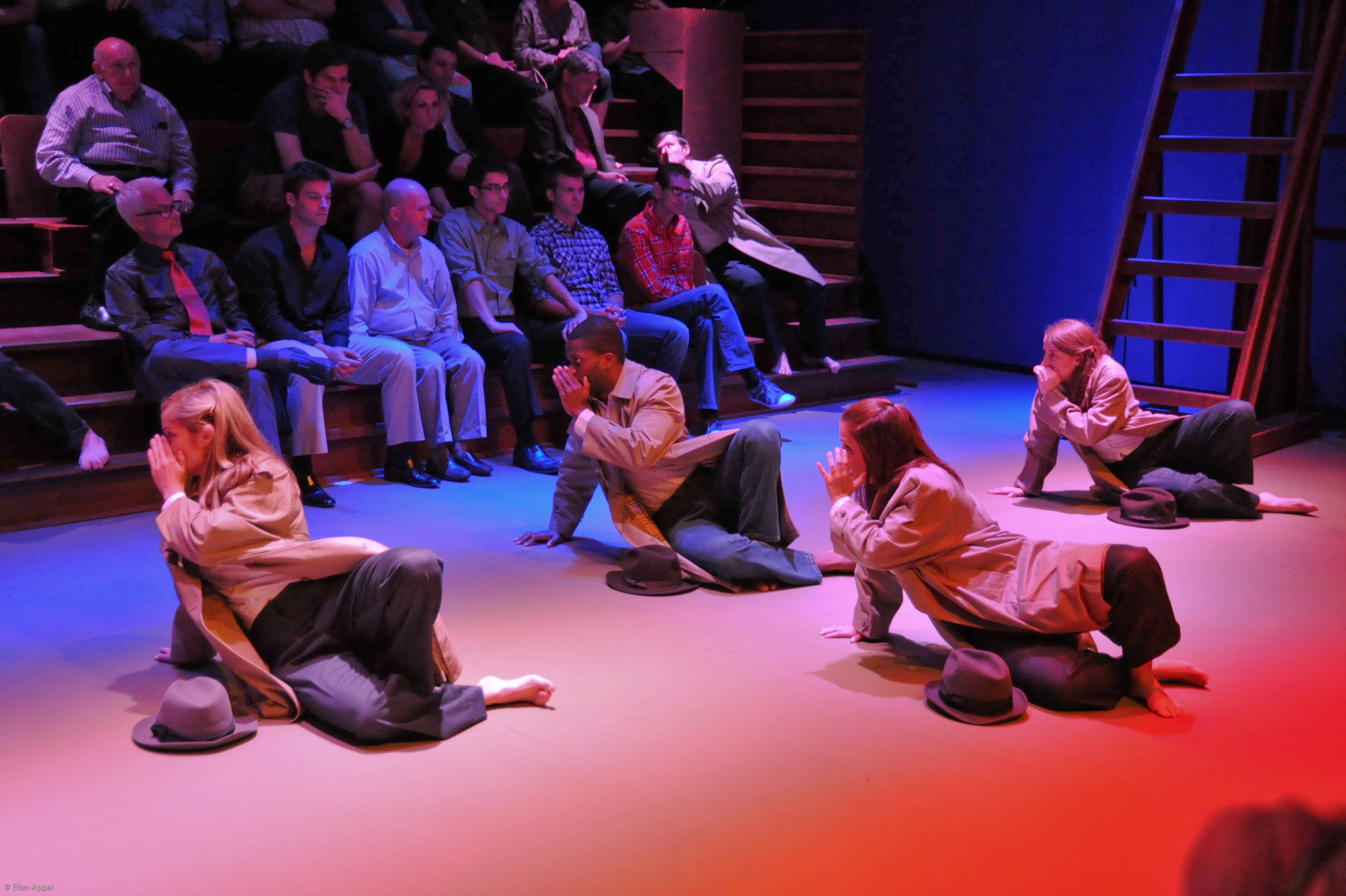
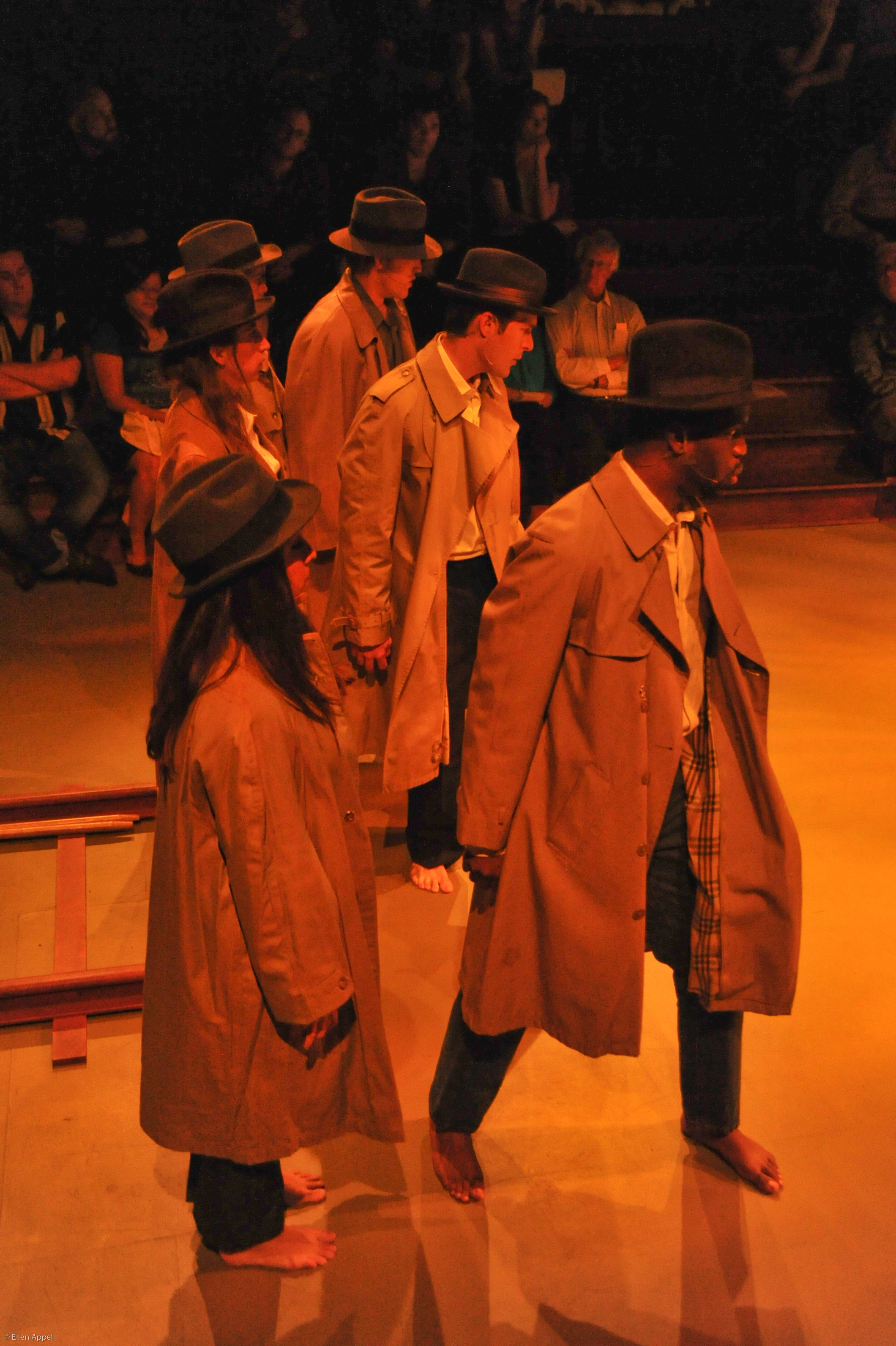
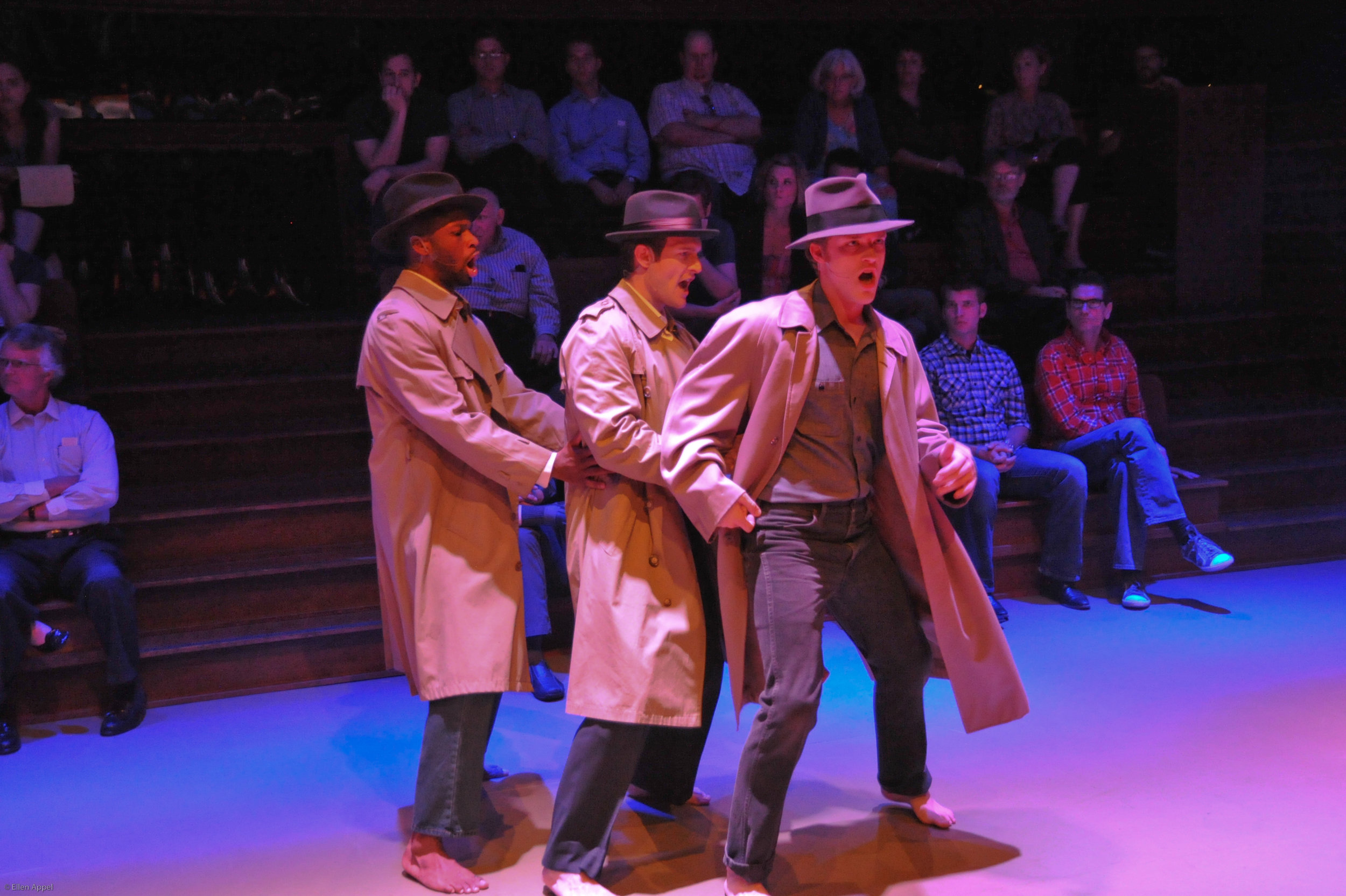
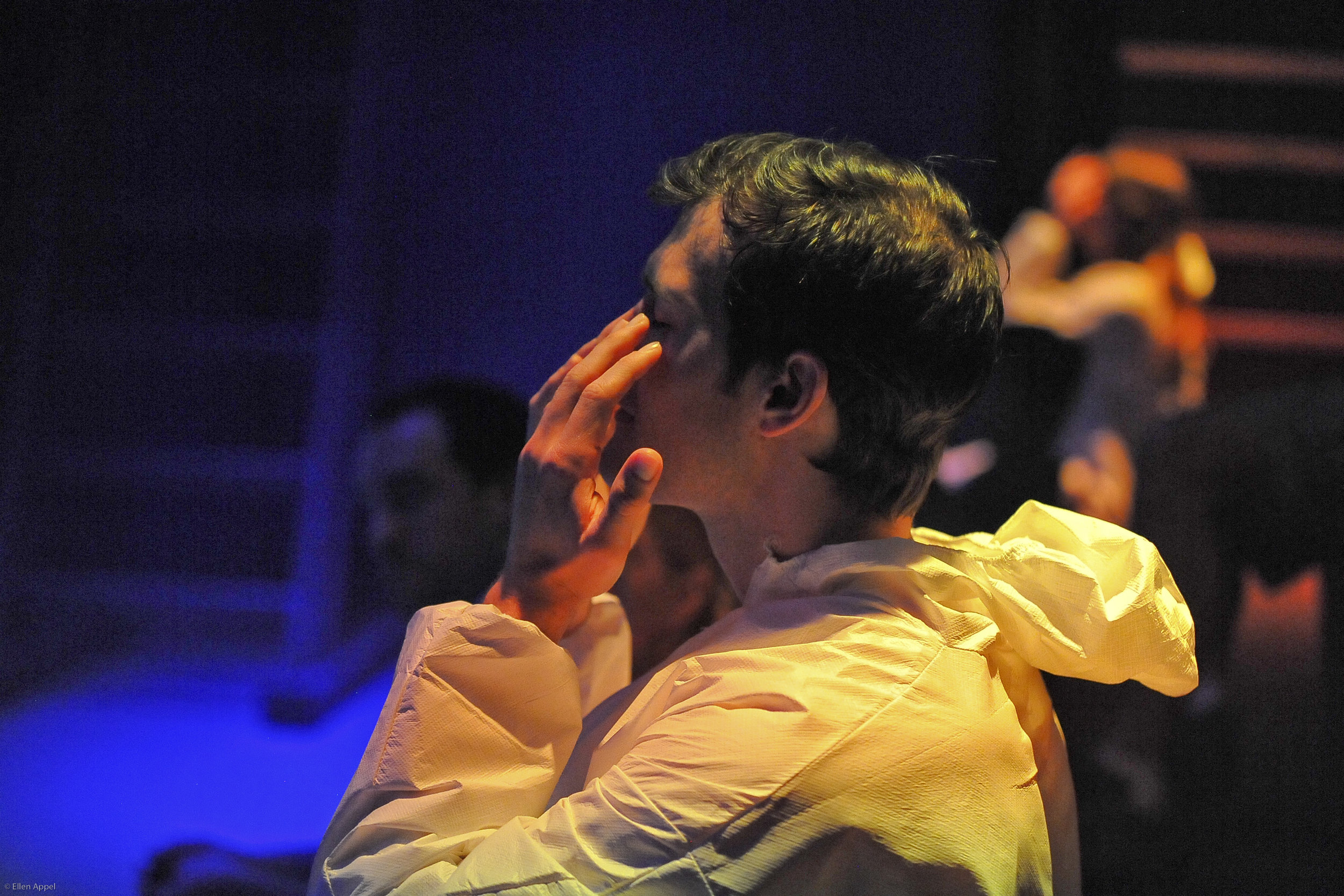
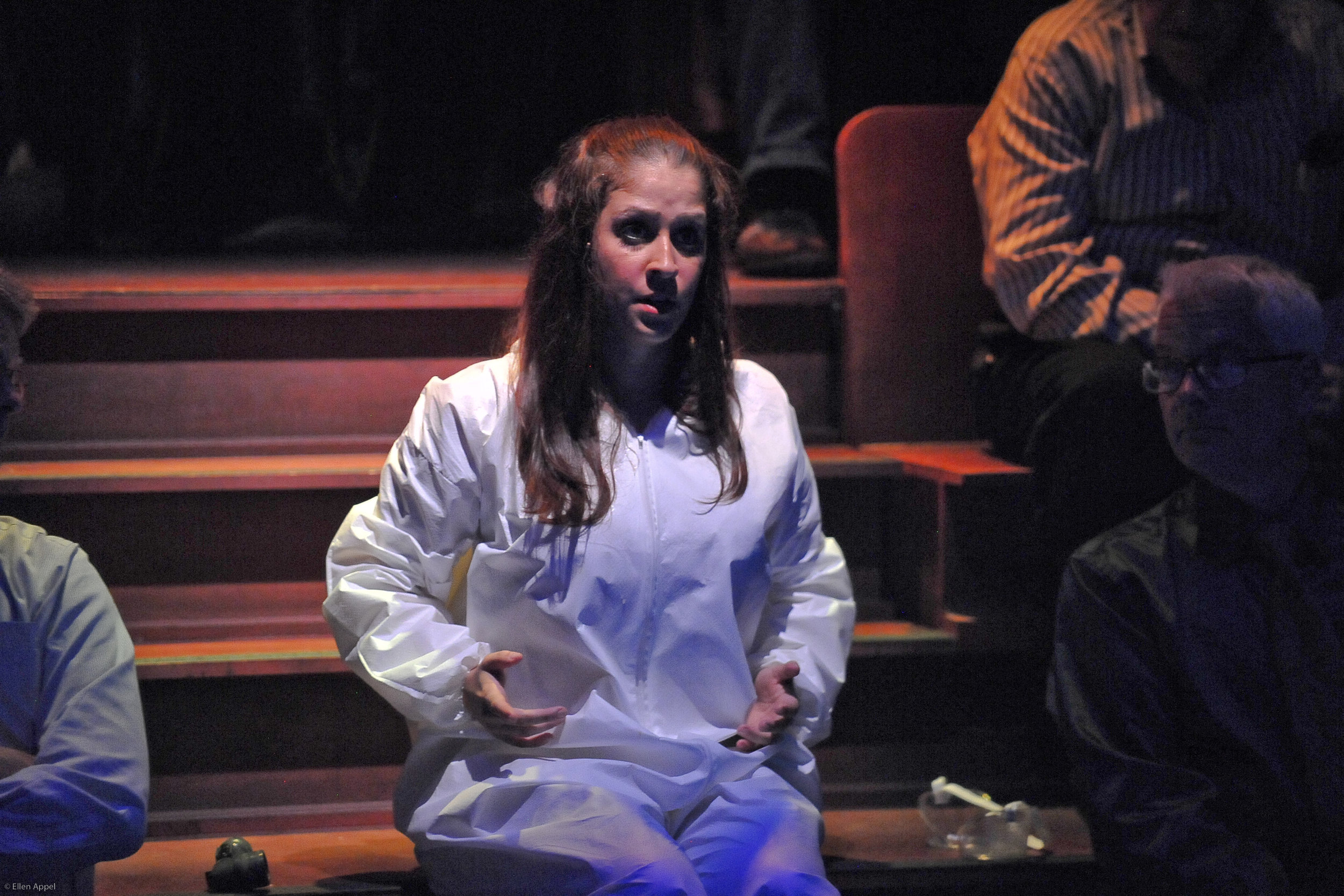
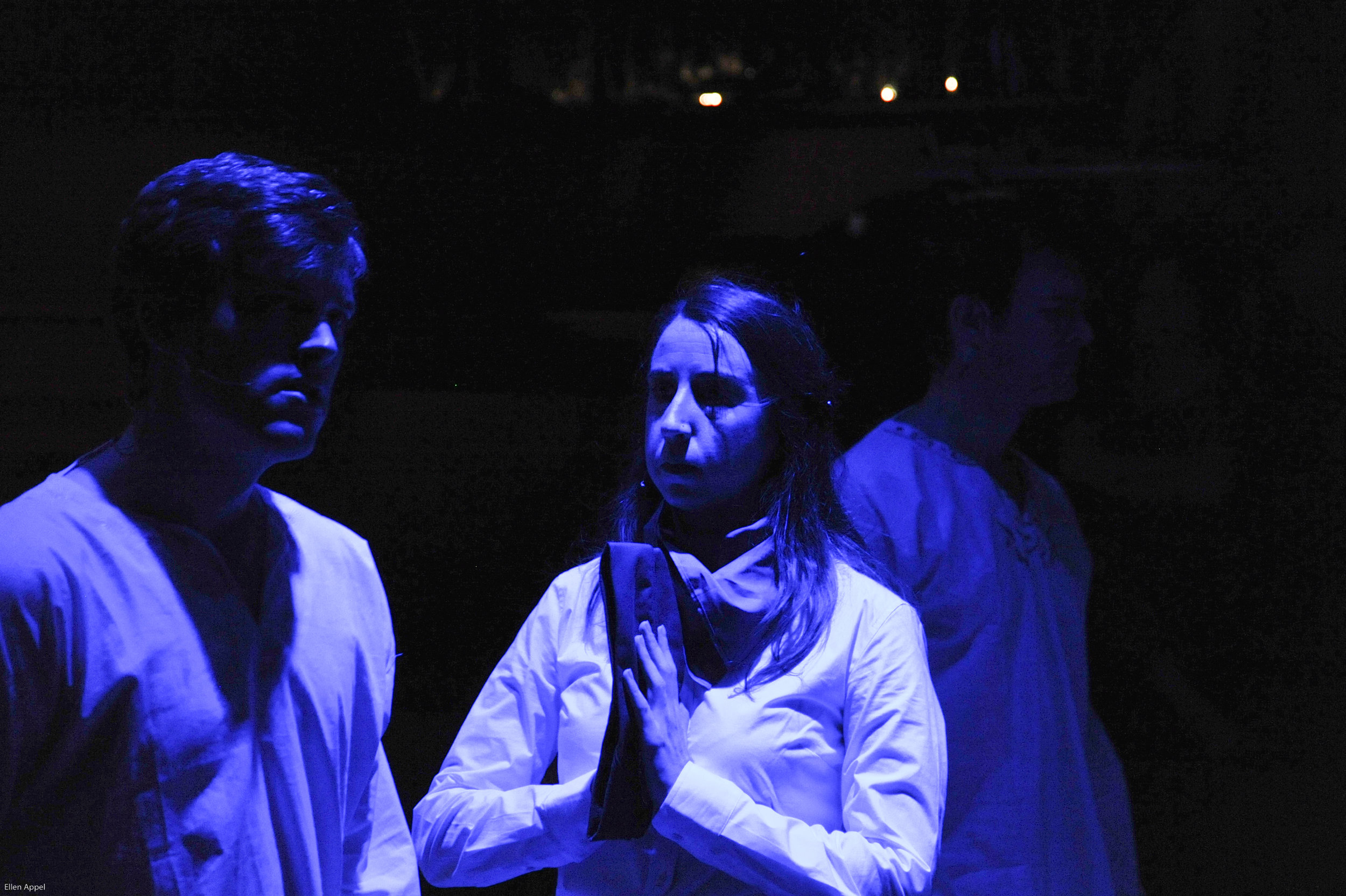
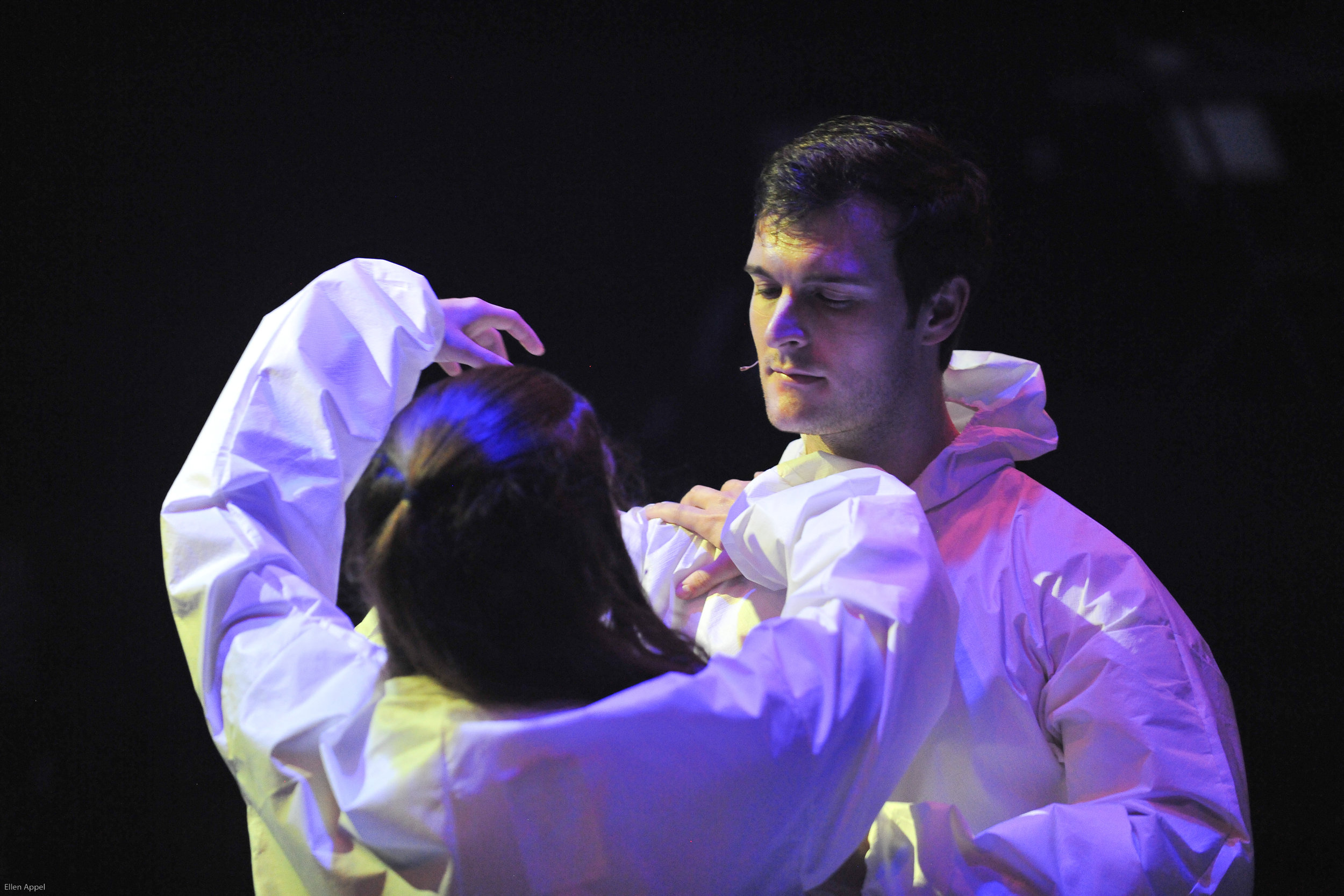
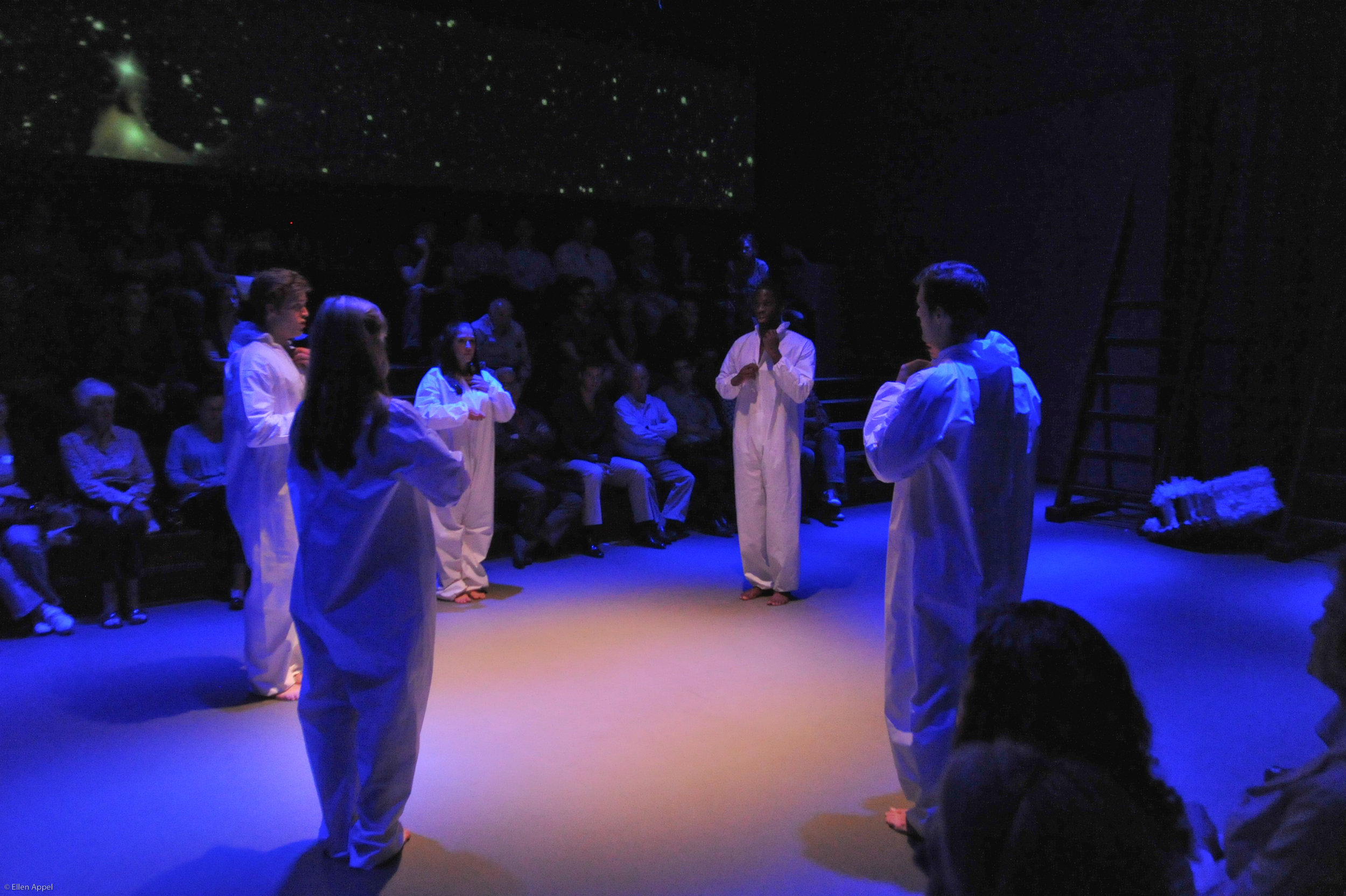
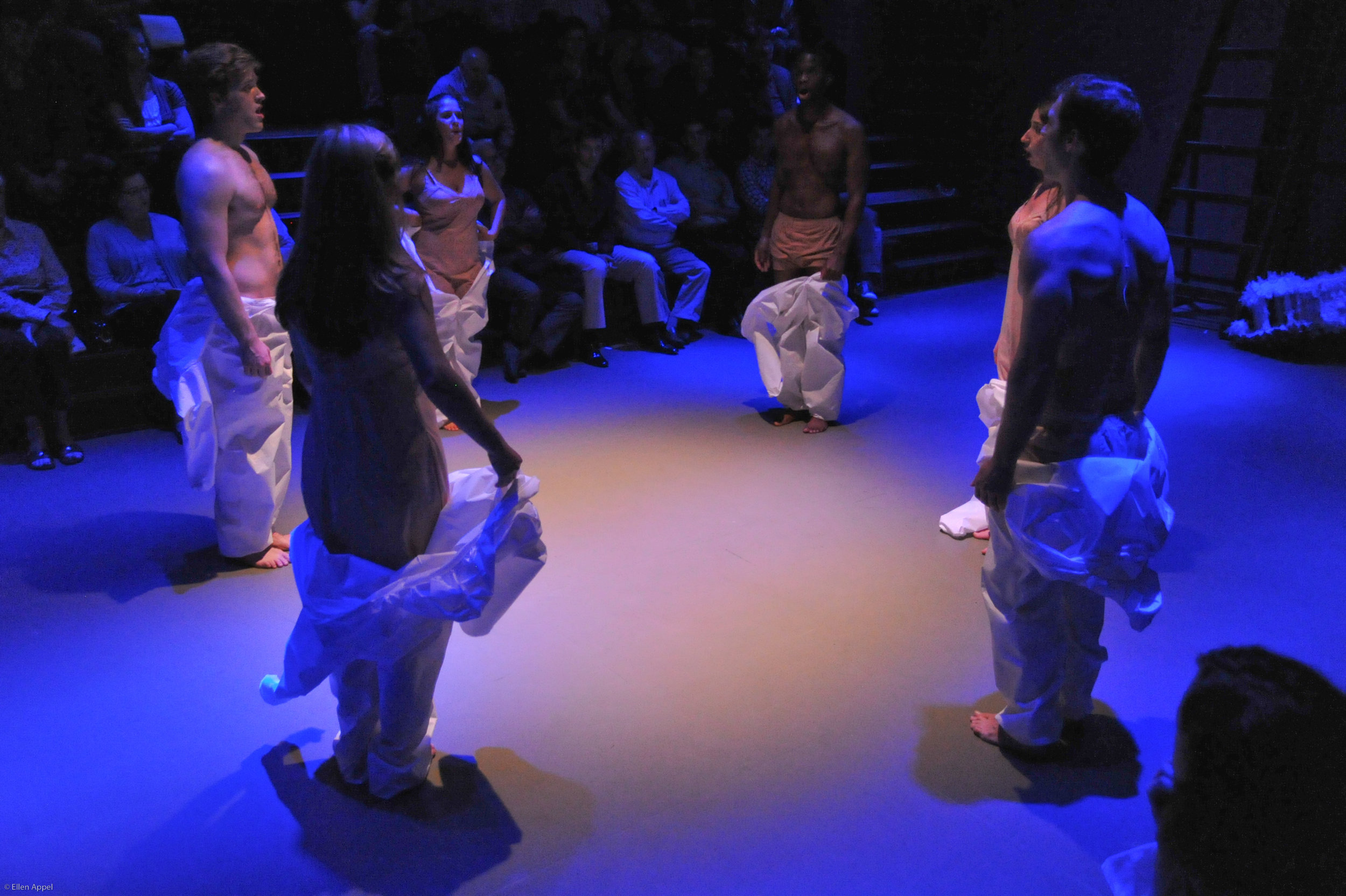

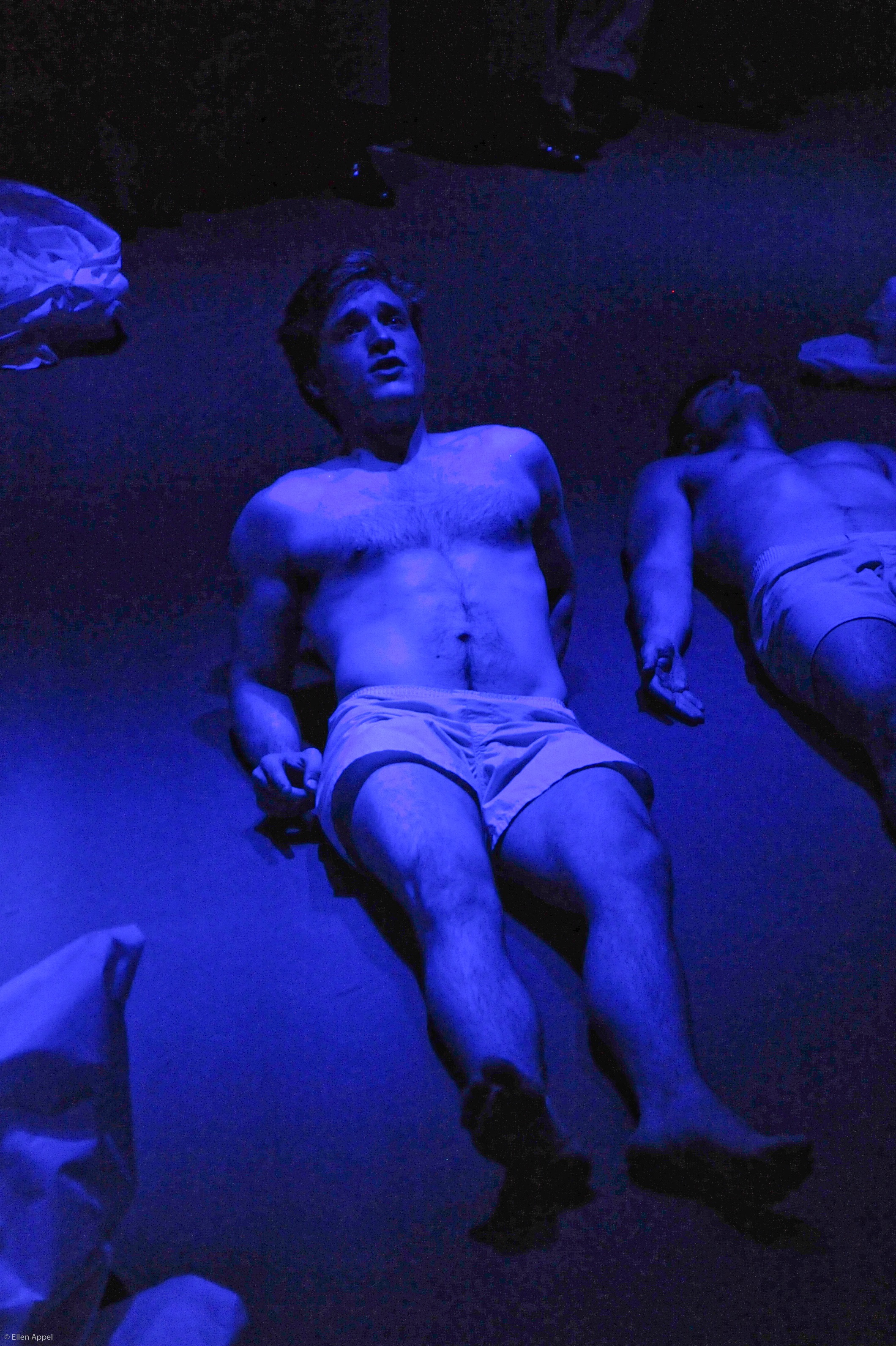
““The Glass piece is more staged song cycle than conventional music drama: Ginsberg’s texts, reflecting his highly personal take on American culture and his place in it, present no continuous characters or linear plot, but there was certainly plenty of dramatic interest in director Lawrence Edelson’s deft, ingeniously minimal production, which began with a railroad track running across the floor between sets of bleachers and subsequently used the track’s components to represent everything from an airplane in flight to a car in motion to a bed. Meanwhile, on the walls above the bleachers, evocative video footage, some historic, some involving the live performers, enhanced and deepened the mood… A talented ensemble of attractive young singers chanted, keened and sang Ginsberg’s lines of hope, disillusionment, love and cynicism, as set to Glass’s mesmeric music, with absolute commitment, baring their souls and a good deal of their bodies as they journeyed across America’s history and geography. The singers were musically accurate, vocally well matched and fearless in their theatrical intensity…Hydrogen Jukebox was certainly a daring choice for this conservative community, but the audience sat rapt throughout — even through the repeated refrain “When Bush was Drug Czar, U.S.A.” — and rose to a unanimous standing ovation (this reviewer included) at the end.”
Opera News
”Tuesday night at Sanders Theatre, Fort Worth Opera presented what is surely this year’s most significant area operatic event—and possibly the most significant theatrical event as well—with the opening performance of a new production of Philip Glass’s Hydrogen Jukebox.. Structurally, Hydrogen Jukebox is not an opera at all, but a set of twenty ensemble pieces. It was up to director Lawrence Edelson and production designer Anya Klepikov to produce a sense of trajectory—not necessarily plot—out of Ginsberg’s brilliant poetic ramblings and Glass’s relentless score. Klepikov arranged the room as a sort of miniature basketball arena, with two sets of bleachers (each seating approximately fifty onlookers) facing each other across a space dominated by ladders and a railroad track. On either wall, projected still photos and moving pictures (produced by C. Andrew Bauer) constantly explored themes of violence (with actual film of executions by firing squads and scattered corpses), as well as other profound themes related to the text. If this sounds, in description, a little heavy-handed, the actual effect was, on the contrary, constantly thought-provoking. Six singers moved across this bleak field of dreams in costumes ranging from combat fatigues to near-nudity, all the while singing beautifully and often powerfully… During his long career, Ginsberg served as a sort of Jeremiah on the American cultural scene, casting, with cold eye and searing words a light on an America very different from the one portrayed constantly in political rhetoric and only unintentionally revealed in our massive popular and commercial culture. Although premiered in 1990, and based on poetry written from as far back as the immediate post-World War II era, the truths of Hydrogen Jukebox, with its refusal to accept or, ultimately, to reject that vast spiritual dream world we call “America,” are, if anything, more frightening and compelling than ever.”
D Magazine: Front Row
”Philip Glass’ chamber opera, to poetry by Allen Ginsberg, continues the Fort Worth Opera Festival’s tradition of new and “out-there” works. Twenty-one years on, its critiques of misjudged wars, corporate abuses and political flimflammery, its acknowledgment of homosexuality and drug use, can still get a rise. Hydrogen Jukebox has been imaginatively staged and choreographed by Lawrence Edelson. Down the middle of the intimate Sanders Theater, with the audience tiered on either side, designer Anya Klepikov stretches a stylized train track. Segments are removed and spun around as part of the choreography; turned-up endings become ladders and roll-around vehicles. C. Andrew Bauer’s projections range from milling faceless crowds to a nuclear-explosion plume. Picking up themes from the libretto, the singers are variously costumed as soldiers in fatigues and gas masks, flight attendants, nuclear scientists and suited bureaucrats. At the end, in a hymn to death, they strip to boxers and slips, lie down and one by one fall silent... Creeping, dancing, flinging themselves, the young singers put on heroic performances.”
Dallas Morning News
”Hydrogen Jukebox is not a traditional opera. A result of a close collaboration between composer Philip Glass and poet Allen Ginsberg, the work reflects, in the words of director/choreographer Lawrence Edelson, ‘a slice of America—a national community facing a myriad of challenges as we travel through the decades.’ There is no concrete narrative present in the piece, but rather moves from poem to poem. The audience is tasked with the challenge of reacting...Fortunately, there is no dearth of material that can elicit a reaction. From the horrors of war, sexual liberation, and even the corruption of politics. No subject is taboo. However, each of these subjects is presented with a strong sense of dignity. While the production can take on dark and gritty aspects, it is never presented in a crass manner. When the subjects of sensuality and sexuality come up, it is never portrayed crudely, but rather as a natural extension of life and society. It holds up the mirror and shows everything, warts and all, but does not denigrate it further…Hydrogen Jukebox is a stark look at life, at society, and at us. It can be dark and emotional. But it shows sincerity in material that won’t be found in other places. This production is more than a “don’t miss.” It is a performance of high caliber and emotion that can remind us of the past, task us with the present, and potentially give us hope for the future.”
Theater Jones”